- African Achievements
- African Ancestry
- African Cuisine
- African Diaspora
- Entertainment
- Travel and Tours
- Marketplace
- Travels & Tours
- Afro School Of Culture
- Global Afro Kids Club
- Community Service


Sacred Sites and Shrines: Pilgrimages Across Africa’s Spiritual Landscapes
Share post:
Africa’s spiritual landscapes are adorned with sacred sites and shrines, each holding a unique significance and allure. For those seeking a profound spiritual journey or a glimpse into the continent’s rich cultural heritage, embarking on pilgrimages to these sacred places can be a transformative experience. In this article, we’ll explore the diversity of sacred sites across Africa, delving into their cultural and spiritual importance while providing insights on how to plan your pilgrimage. From the ancient pyramids of Egypt to the mystical forests of Nigeria , get ready to embark on a spiritual odyssey like no other.

**1. The Great Pyramids of Giza, Egypt**
A pilgrimage to the Great Pyramids is a journey back in time to one of the world’s most iconic and enigmatic ancient sites. These colossal structures have captured the imagination for centuries, with their precise construction and alignment with the stars. Visitors can explore the pyramids, the Sphinx, and nearby temples while immersing themselves in the mysteries of ancient Egypt.
**2. Lalibela, Ethiopia**
Lalibela, often referred to as “The New Jerusalem,” is renowned for its rock-hewn churches carved directly into the earth. These astonishing structures, dating back to the 12th century, are a testament to Ethiopian Orthodox Christianity. Pilgrims can attend religious ceremonies and explore the intricate underground passages connecting the churches.
**3. Mount Sinai, Egypt**
Mount Sinai, also known as Jebel Musa, is a sacred peak in the Sinai Peninsula. It is revered in Christianity, Islam, and Judaism as the place where Moses received the Ten Commandments. Pilgrims often ascend the mountain at dawn, a challenging yet spiritually rewarding experience, to witness the sunrise from its summit.
**4. Lake Malawi, Malawi**
Lake Malawi is home to Likoma Island, where St. Peter’s Cathedral stands as a prominent pilgrimage destination. The cathedral, built in the early 20th century, boasts stunning architecture and serene surroundings. Pilgrims can partake in religious services, enjoy the tranquil lake, and connect with local communities.
**5. Osun-Osogbo Sacred Grove, Nigeria**
The Osun-Osogbo Sacred Grove is a UNESCO World Heritage Site and a place of reverence for followers of Yoruba religion. This lush forest is adorned with sculptures, shrines, and natural water springs, and it hosts the annual Osun-Osogbo Festival. Pilgrims can explore the spiritual significance of this sacred grove while enjoying its breathtaking beauty.

**6. Djenne, Mali**
Djenne is home to the Great Mosque of Djenne, the largest mud-brick structure in the world. This mosque, a UNESCO World Heritage Site, is an architectural marvel and a sacred place for the local Muslim community. Pilgrims can witness traditional mud-brick construction techniques and participate in communal prayers.
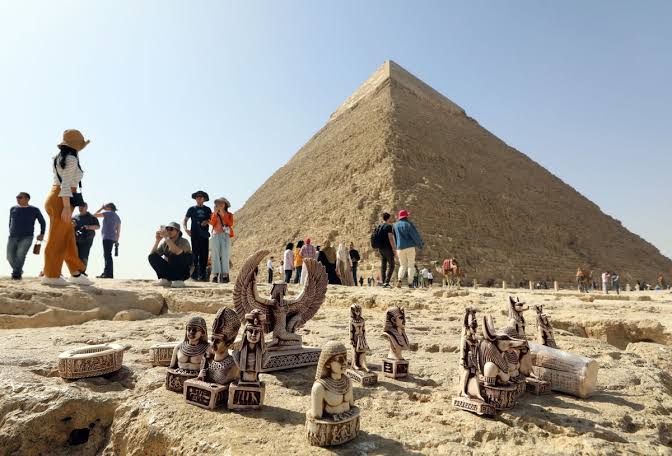
**7. Kaya Kinondo Sacred Forest, Kenya**
The Kaya Kinondo Sacred Forest is a sacred site of the Mijikenda people and is considered one of the last remaining sacred coastal forests in East Africa. Pilgrims can explore the forest’s rich biodiversity, learn about the rituals and traditions of the Mijikenda, and connect with the spiritual energy of this unique place.
**8. Timbuktu, Mali**
Timbuktu, known as the “City of 333 Saints,” is steeped in Islamic history and scholarship. The city is home to numerous mosques, libraries, and mausoleums of revered saints. Pilgrims can explore these historic sites and delve into the city’s vibrant cultural heritage.
**9. The Maasai Mara, Kenya**
For the Maasai people, the Maasai Mara is a sacred land that holds deep cultural and spiritual significance. Pilgrims can immerse themselves in Maasai traditions, witness the Great Migration of wildebeests, and appreciate the profound connection between the Maasai and their ancestral lands.
**10. Benin City, Nigeria**
Benin City is known for its rich history and the famous Benin Bronzes. It is also a hub of ancestral worship and veneration. Pilgrims can visit ancestral shrines, participate in traditional ceremonies, and gain insights into the spiritual beliefs of the Edo people.

Embarking on a pilgrimage to Africa’s sacred sites and shrines is a profound and enriching experience that allows travelers to connect with the continent’s deep spirituality and cultural heritage. Whether you seek ancient mysteries in Egypt, explore rock-hewn churches in Ethiopia, or immerse yourself in the traditions of local communities in Nigeria and beyond, these journeys offer a glimpse into the diverse spiritual tapestry of Africa. As you plan your pilgrimage, remember to respect the sacredness of these places, engage with local customs, and open your heart to the transformative power of these spiritual landscapes. In the end, your pilgrimage will not only be a physical journey but also a soulful exploration of Africa’s enduring spiritual legacy.
- African sacred sites
LEAVE A REPLY Cancel reply
Save my name, email, and website in this browser for the next time I comment.
We Generated $56,700 From Renting out Baba Yara Stadium for Church Activities – Ghana’s NSA board chair
South africa welcomes home remains of 42 apartheid freedom fighters who died while on exile, st. lucia welcomes home first olympic medalist julien alfred to a hero’s celebration, namibia welcomes back descendants of herero genocide victims in historic move toward restorative justice, travis scott’s mixtape ‘days before rodeo’ becomes highest-selling mixtape of all time, being an imposter with purpose – your best leadership lesson in africa, related articles, meet the five african entrepreneurs who have changed the business landscape.
- Partnership
Copyright I Love Africa

- AFRICAN MYTHOLOGY / MYTHOLOGY
The Igbo Mbari Houses: Artistic Rituals in Nigeria
by The Enlightenment Journey ·
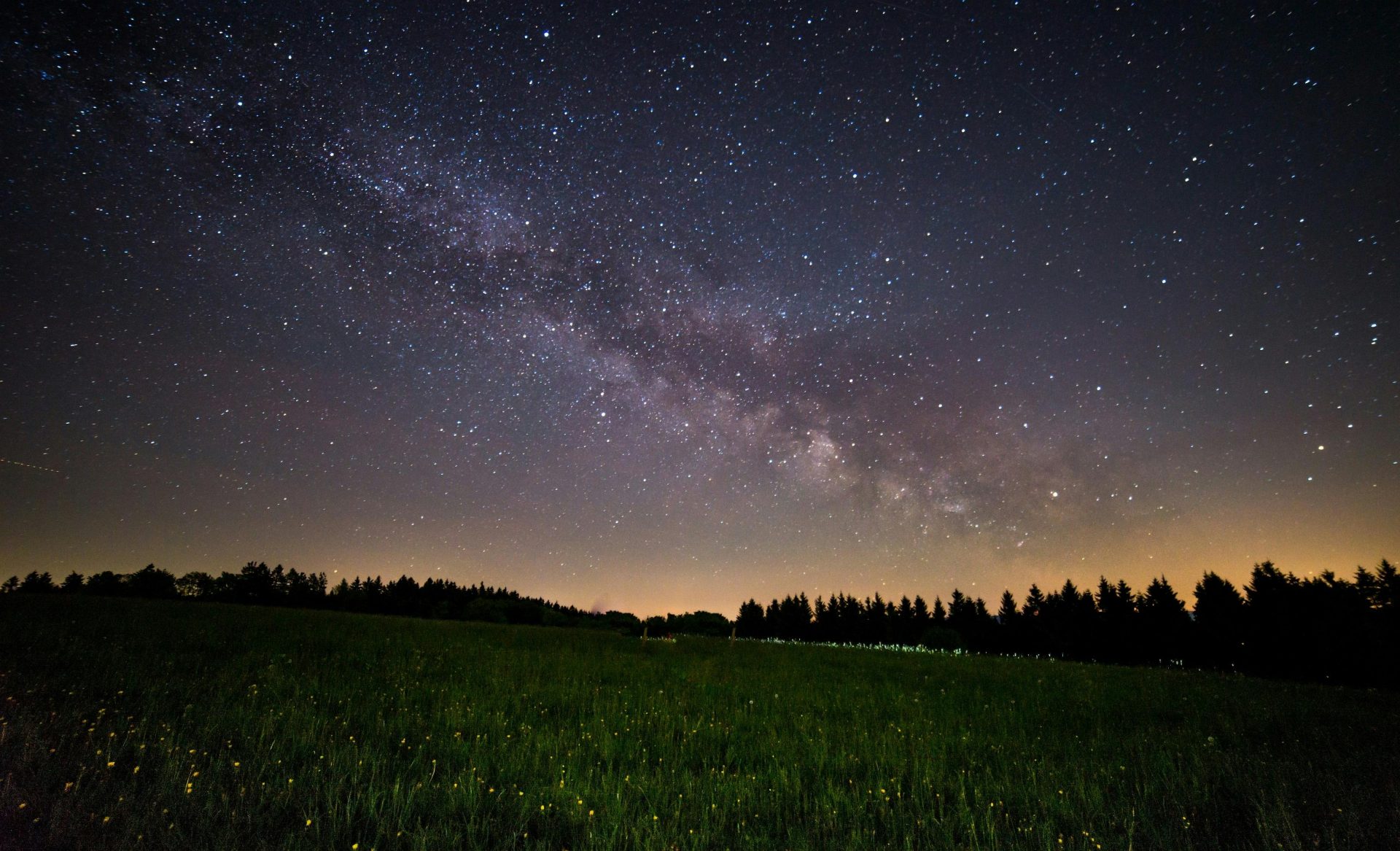
TRANSLATE BUTTON AT THE END OF THE ARTICLE
Introduction to Igbo Mbari Houses
Igbo Mbari Houses are unique structures found in the Igbo culture of Nigeria.
They serve as artistic ritual spaces where various ceremonies and celebrations are held.
These houses are not just ordinary buildings, but rather, they are architectural marvels that showcase the creativity and skill of Igbo artisans.
The construction of Mbari Houses involves intricate carvings, sculptures, and murals, which are all created in honor of deities and ancestors.
These structures hold immense cultural and spiritual significance for the Igbo people, reflecting their rich artistic traditions and beliefs.
Historical Background of Igbo Mbari Houses
The tradition of Mbari Houses dates back centuries in Igbo history.
It is believed to have originated from the ancient Nri Kingdom, which was known for its cultural and religious practices.
Mbari Houses were initially constructed as part of a ritual to appease the gods and seek their blessings.
Over time, the tradition spread to other Igbo communities, becoming an integral part of their cultural heritage.
The historical background of these houses is deeply intertwined with the history and religious practices of the Igbo people.
Significance of Mbari Houses in Igbo Culture
Mbari Houses hold immense cultural and religious significance in Igbo society.
They are considered sacred spaces where the community gathers to worship and celebrate important events.
These houses are believed to be a gateway between the physical and spiritual realms, connecting the living with their ancestors and deities.
Mbari Houses also serve as a symbol of wealth and prestige, showcasing the artistic talents of the community.
They play a vital role in preserving and passing down Igbo traditions and values to future generations.
Construction and Architecture of Mbari Houses
The construction and architecture of Mbari Houses are truly remarkable.
These structures are typically built in a circular or rectangular shape, with multiple levels that represent different aspects of Igbo cosmology.
The walls of the houses are adorned with intricate sculptures, carvings, and paintings, depicting various deities, animals, and mythological figures.
The roofs are often thatched with palm fronds, adding to the traditional aesthetic of the houses.
Mbari Houses are designed to be visually striking, attracting both locals and tourists with their unique beauty.
Materials Used in Building Mbari Houses
Traditional materials are used in the construction of Mbari Houses, reflecting the natural resources available in the region.
The walls are typically made of mud or clay, mixed with straw or grass for added strength.
Wood is used for the structural framework, while palm fronds or grass are used for thatching the roofs.
Sculptures and carvings are made from locally sourced materials such as wood, stone, and clay.
Natural pigments derived from plants and minerals are used for painting the murals and decorative elements.
Symbolism and Purpose of Mbari Houses
Mbari Houses are filled with symbolism, representing various aspects of Igbo culture and spirituality.
The sculptures and carvings found within these structures often depict ancestral spirits, deities, and mythological creatures.
Each figure carries a specific meaning, conveying messages of protection, fertility, and prosperity.
The purpose of Mbari Houses is to honor and appease the gods and ancestors, seeking their guidance and blessings.
These structures are also seen as a physical manifestation of the community’s collective identity and cultural heritage.
Rituals and Ceremonies Associated with Mbari Houses
Numerous rituals and ceremonies are associated with Mbari Houses, making them vibrant centers of cultural activities.
These rituals include offerings, dances, and prayers, all performed to appease the gods and invoke their blessings.
Mbari House ceremonies are often accompanied by music, drumming, and singing, creating a lively and joyous atmosphere.
These events bring the community together, promoting a sense of unity and solidarity among the Igbo people.
Mbari House rituals are considered sacred and are conducted by designated priests and priestesses.
Role of Artists in Mbari House Creation
Artists play a crucial role in the creation of Mbari Houses.
They are responsible for designing and sculpting the intricate figures and decorative elements found within these structures.
These artists possess specialized knowledge and skills, passed down through generations, allowing them to create awe-inspiring works of art.
The artists are not just craftsmen, but also spiritual intermediaries, as they infuse their creations with symbolic and spiritual meanings.
The work of these artists is highly respected and valued in Igbo society.
Influence of Mbari Houses on Contemporary Art
The influence of Mbari Houses extends beyond traditional Igbo culture and has inspired contemporary artists both within Nigeria and beyond.
The unique architectural style, intricate sculptures, and vibrant murals found in Mbari Houses have influenced various art forms, including painting, sculpture, and installation art.
Artists incorporate elements of Igbo artistic traditions into their work, paying homage to the rich cultural heritage of the Igbo people.
This influence has helped preserve and promote Igbo art on a global scale, contributing to a greater appreciation of African art as a whole.
Preservation Efforts and Challenges
Preserving Mbari Houses is crucial to safeguarding the cultural heritage of the Igbo people.
However, these structures face numerous challenges , including natural decay, urbanization, and lack of awareness and funding for their maintenance.
Efforts are being made by local communities, cultural organizations, and government bodies to protect and restore Mbari Houses.
These initiatives include documentation, conservation, and educational programs aimed at raising awareness about the significance of these structures.
The preservation of Mbari Houses is not only important for the Igbo people but also for the wider understanding and appreciation of African art and culture.
Conclusion: Celebrating the Richness of Igbo Mbari Houses
In conclusion, Igbo Mbari Houses are not just architectural wonders but also hold immense cultural and spiritual significance.
These structures serve as artistic ritual spaces where the community gathers to worship, celebrate, and honor their ancestors and deities.
The construction, materials, symbolism, and rituals associated with Mbari Houses reflect the rich artistic traditions and beliefs of the Igbo people.
Artists play a vital role in the creation of Mbari Houses, infusing them with spiritual and symbolic meanings.
The influence of Mbari Houses extends beyond traditional practices and has inspired contemporary art forms.
Efforts are being made to preserve and protect these structures, ensuring the cultural heritage of the Igbo people continues to thrive.
The Igbo Mbari Houses stand as a testament to the creativity, spirituality, and cultural richness of the Igbo people in Nigeria.
TRANSLATE THIS PAGE
Explore the rich tapestry of mythology.
Immerse yourself in the fascinating world of mythology with our carefully selected Kindle books.
From ancient legends and epic tales to mythical creatures and cultural folklore, these best-selling eBooks offer a treasure trove of stories and insights from various mythological traditions.
Discover the captivating narratives that have shaped cultures throughout history.
Click below to find your next great read and dive deeper into the enchanting realm of myths and legends!

Explore the realms of Worlds of Magic to delve into what is often termed "Mystery School Magic"—a concept that may seem mystical but is rooted in universal principles and laws.
This program demystifies the extraordinary by explaining how certain universal laws can lead to what we call miracles.
You'll journey through the astral plane, learn about channeling and communication with spirit guides, and discover why prayers sometimes fall short.
The course also covers eight factors that contribute to effective prayers, explores illusory magic from India, and reveals ancient Egyptian magical practices.
Unlock the secrets of these magical realms and gain insights that bridge the mystical with the practical.
To embark on this magical journey and uncover the wisdom of ancient practices, click here to start exploring .

Embarking on a spiritual journey can sometimes feel solitary, but with Higher Connections – Communicate with Angels, Guides & Master Teachers , you’re never alone.
This MP3 program is crafted to help you open up channels of communication with angels, master teachers, and spiritual guides who are always ready to support you.
Imagine having a direct line to beings of love and wisdom, ready to assist you in every aspect of your life. Higher Connections provides you with the tools and techniques to establish and nurture these profound connections.
The gentle, soothing recordings are designed to seamlessly integrate into your daily routine, offering a space for reflection and deeper spiritual insight.
If you’re looking to enhance your connection with higher realms and receive guidance from loving and wise entities, this program could be a wonderful resource on your path. Click Here to Learn More .
Disclosure:
This blog includes affiliate links. If you click on these links and make a purchase, we may earn a small commission at no extra cost to you. We only suggest products and services that we trust and believe will be helpful to our readers. Our recommendations are based on thorough research and personal experience to ensure they are honest and reliable.
The commissions earned from these links help cover the costs of maintaining our site, such as web hosting, domain registration, content creation, design, and technical aspects. Running a high-quality blog requires significant time, effort, and resources, and these earnings help us keep the site running smoothly.
Your support through these affiliate purchases enables us to continue providing valuable content and enhancing our offerings. Our blog aims to inform and inspire people around the world. We are grateful for your trust and support. Thank you for being a part of our community and supporting The Enlightenment Journey!

The Enlightenment Journey is a remarkable collection of writings authored by a distinguished group of experts in the fields of spirituality, new age , and esoteric knowledge.
This anthology features a diverse assembly of well-experienced authors who bring their profound insights and credible perspectives to the forefront.
Each contributor possesses a wealth of knowledge and wisdom, making them authorities in their respective domains.
Together, they offer readers a transformative journey into the realms of spiritual growth, self-discovery, and esoteric enlightenment.
The Enlightenment Journey is a testament to the collective expertise of these luminaries, providing readers with a rich tapestry of ideas and information to illuminate their spiritual path.
Our Diverse Expertise 🌟
While our primary focus is on spirituality and esotericism, we are equally passionate about exploring a wide range of other topics and niches 🌍📚. Our experienced team is dedicated to delivering high-quality, informative content across various subjects ✨.
To ensure we provide the most accurate and valuable insights, we collaborate with trusted experts in their respective domains 🧑🏫👩🏫. This allows us to offer well-rounded perspectives and knowledge to our readers.
Our blog originally focused on spirituality and metaphysics, but we’ve since expanded to cover a wide range of niches. Don’t worry—we continue to publish a lot of articles on spirituality! Frequently visit our blog to explore our diverse content and stay tuned for more insightful reads.
Share this:
You may also like....

Sirara: Sumerian Goddess of Beer and Brewing

The Role of Love Gods and Goddesses in Mythology

The Legend of Hine-nui-te-Po and Maui: Death and Rebirth
Leave a reply cancel reply.
Your email address will not be published. Required fields are marked *
Save my name, email, and website in this browser for the next time I comment.
- Next story The Ngoni People: Warrior Traditions and Migration
- Previous story Enlil: Chief Deity and Lord of Mesopotamian Pantheon
AWESOME BLOG ARTICLES

DREAM MEANINGS / SPIRITUALITY
What’s the Meaning of Your Dreams About Food?

ANIMAL / PET SPIRITUALITY
Pet Telepathy: Mind-to-Mind Bond

SPIRITUALITY
Spiritual Tourism: Journey to the Sacred

Merge into Soul Light: Attain Enlightenment

ENLIGHTENMENT
How to Foster Spiritual Enlightenment Through Nature
SEARCH BLOG

MORE AMAZING POSTS
- Recent Posts
- Popular Posts
- Recent Comments

CONSCIOUSNESS
The Evolution of Consciousness: From Simple Awareness to Complex Thought

Understanding Consciousness: A Comprehensive Overview

Past Life Regression and Historical Explorations in Enlightenment

Heart-Center Forgiveness and World Healing Techniques

Clear Anger, Hatred, and Resentment for Spiritual Growth

MINDFULNESS
Transform Your Life with Meditation Mastery

The Impact of Music on Meditation and Spirituality

MINDFULNESS / SPIRITUALITY
Sound Healing: The Spiritual Vibrations of Meditation Music

Mindfulness Medley: Practices for Present Moment Awareness

Grounding Meditation: Root Yourself in Peace & Stability
- Ascension Camping Christmas Cleaning Hacks Color Meanings Digital Nomad Divine Intervention Dog Breeds Energy Self Mastery Enlightenment fashion spirituality Fitness Spirituality food spirituality Gaming Spirituality Halloween Heal Childhood Wounds Higher Self Guidance Hypnosis Initiation Into Love JAPANESE MYTHOLOGY Karma Life Beyond Marketing Meditation Mastery Online Surveys Outdoor Spirituality past lives pet spirituality Plants psychic self-defense Real Estate Remote Work Social Media Soul-Mate Attraction Soul Gifts soul merge Soul Solution spiritual beauty Synchronicity travel spirituality Violet Light Purification Web Hosting Weight Loss Affirmations White Light Wildlife
STAY UP TO DATE!
Register now to get updates on new esoteric articles posted
Please enter your email and Hit the Subscribe button!
You have successfully subscribed to the newsletter
There was an error while trying to send your request. Please try again.

Contact Info
Yenagoa, Bayelsa, Nigeria
- [email protected]
- +234 902 608 5122
- Article Details
- Information
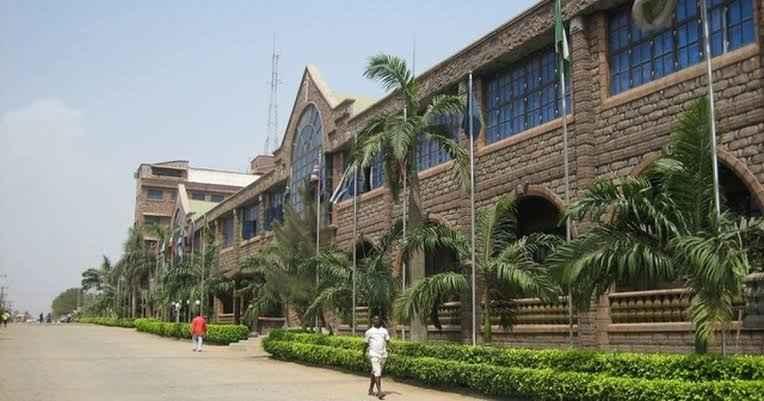
7 Of Nigeria's Holiest Sites For Spiritual Rebirth And Freedom
Nigeria, often called the "Giant of Africa," is not only a land of diverse cultures and languages but also a nation deeply rooted in spirituality. Across the country, there are numerous sites where people go seeking spiritual rebirth, divine intervention, and freedom from life’s many challenges. These sacred places, steeped in history and spiritual significance, offer pilgrims a chance to reconnect with their faith and experience profound transformation. Here are seven of Nigeria's holiest sites where many have found the spiritual renewal and freedom they desperately sought.
1. Mount Zion, Enugu
Mount Zion in Enugu is a serene and spiritually charged environment that attracts pilgrims from across Nigeria. Situated within the Enugu metropolis, this site has become a beacon for those seeking spiritual rebirth. The mountain is known for its tranquility and the palpable presence of the divine, making it a perfect retreat for prayer, fasting, and meditation. Many who visit Mount Zion testify to experiencing deep spiritual encounters that lead to personal transformation and deliverance from burdens. The climb up the mountain itself is seen as a symbolic journey towards spiritual elevation and closeness to God.
2. The Ado-Awaye Suspended Lake, Oyo State
The Ado-Awaye Suspended Lake, also known as Iyake Lake, is one of the only two suspended lakes in the world, and it carries significant spiritual importance. Located in the Oyo State, this mysterious body of water is believed to possess spiritual powers that can cleanse and renew one’s spirit. Pilgrims often embark on the strenuous climb up the Ado-Awaye Mountains to reach the lake, where they engage in prayers and rituals, seeking spiritual freedom from life's troubles. The sheer majesty and natural beauty of the site add to the sense of awe and reverence, making it a must-visit for those looking to deepen their spiritual journey.
3. The Synagogue Church of All Nations (SCOAN), Lagos
The Synagogue Church of All Nations (SCOAN) in Lagos, founded by the late Prophet T.B. Joshua, is not just a church but a global spiritual haven. People from around the world flock to SCOAN seeking healing, deliverance, and a fresh start in life. The church is famous for its intense prayer sessions, prophetic declarations, and miraculous healings. For many, a visit to SCOAN represents a significant step towards spiritual freedom, as they leave behind the burdens of sickness, poverty, and spiritual oppression. The atmosphere is charged with faith, making it one of Nigeria's most powerful places for spiritual rebirth.
4. Olumo Rock, Abeokuta
Olumo Rock in Abeokuta, Ogun State, is a site that blends cultural heritage with deep spiritual significance. Traditionally, Olumo Rock was a refuge for the Egba people during times of war, but it has since become a spiritual retreat for those seeking divine guidance and protection. The rock is believed to be a sacred site where prayers are answered, and many visitors engage in spiritual activities like meditation, traditional rituals, and prayer. The panoramic view from the top offers a moment of reflection, symbolizing a higher perspective on life’s challenges, making it a potent place for spiritual renewal.
5. Osun-Osogbo Sacred Grove, Osun State
The Osun-Osogbo Sacred Grove, a UNESCO World Heritage Site, is not just a cultural landmark but a deeply spiritual site dedicated to the goddess Osun, the Yoruba deity of fertility and water. Located in Osogbo, this sacred forest is a place where thousands gather annually for the Osun-Osogbo festival, seeking blessings, healing, and spiritual renewal. The serene environment of the grove, combined with the presence of sacred shrines and the flowing river, creates an atmosphere of peace and spiritual rejuvenation. Pilgrims often leave with a sense of freedom and new beginnings, believing that the goddess has granted their requests.
6. Sokoto Caliphate, Sokoto
The Sokoto Caliphate, a significant Islamic site in Nigeria, holds profound spiritual importance for Muslims in the country and beyond. Established by Usman dan Fodio in the early 19th century, the caliphate is a center of Islamic learning, spiritual discipline, and renewal. Pilgrims visiting Sokoto often engage in prayers at the Sultan Bello Mosque, seeking divine guidance and purification. The spiritual atmosphere in Sokoto, particularly during Islamic festivals like Eid, is electric, offering Muslims a powerful experience of spiritual rebirth and a deepened connection to their faith.
7. Idanre Hills, Ondo State
The Idanre Hills in Ondo State is not just a breathtaking natural wonder but a place of spiritual significance. The ancient town of Idanre, located atop the hills, is believed to be a place where the spiritual and physical worlds meet. The challenging climb up the hills is often seen as a pilgrimage, symbolizing the journey of life and the quest for spiritual freedom. At the summit, visitors often engage in prayers and rituals, seeking divine intervention in their lives. The spiritual energy of the place, combined with its natural beauty, makes Idanre Hills a powerful site for those seeking renewal and a fresh start.
In a country as spiritually vibrant as Nigeria, these seven sites stand out as places where the quest for spiritual rebirth and freedom can be pursued with fervor and faith. Whether through the serene environment of Mount Zion, the miraculous atmosphere of SCOAN, or the sacred traditions of the Osun-Osogbo Grove, each site offers a unique path to spiritual renewal. For those seeking to break free from life’s challenges and experience a profound transformation, these holy sites provide the perfect setting for a fresh encounter with the divine.
Share and Earn

Ikiodiete .M. George
Founder & President of Lucretia Technologies Ltd, a leading conglomerate driving innovation through its subsidiaries: Kashgain, Brandi, and Konnect. Visionary leader, entrepreneur, and technologist dedicated to shaping the future of business and technology.
7 Must-Visit Churches In Nigeria
How to easily check your waec result fr…, get paid for your opinion.
Leave a comment below and earn ₦2 per comment. (Priority Program)
Your email address will not be published.
Login or Sign up to post a comment
Explore Topics
Trending posts, 10 legit game apps that pay directly into your nigerian bank account: have fun, earn real money.
- Sep 07, 2024
How To Easily Collect Your Original Neco Certificate
- Aug 08, 2024
8 Richest Churches In Nigeria
- Feb 16, 2024
Official Salary Structure Of Adamawa State Civil Service: Allowances And Benefits For Public Servants
- Aug 13, 2024
Airtel Midnight Plan Code [Updated]: Everything You Need To Know
Kano state billionaires: top 10 richest men (2024).
- Aug 09, 2024
Federal Fire Service 2024: Rank, Salary, And Benefits
- Aug 03, 2024
Top 7 Most Handsome Nollywood Actors In 2024
- Jul 22, 2024
Top 10 Best Hospitals In Nigeria
- Mar 26, 2024
The Approved Nigerian Police Salary And Allowance Structure
- Jul 19, 2024
Explore Topics on Konnect
- Entertainment (558)
- Finance (250)
- Education & Careers (306)
- Travel & Adventure (8)
- Fashion & Beauty (9)
- Lifestyle & Hobbies (4)
- Marketing & Sales (28)
- Business (180)
- Design & Development (0)
- Relationships (28)
- Science & Medicine (9)
- Agriculture (57)
- Your Own Journey (1)
- Health & Fitness (84)
- Technology (8)
- Electronics & Gadgets (39)
- Architecture (8)
- Parenting (2)
- Sports (47)
- Salaries (230)
- Information (665)
- Trending (1)
- Trading (17)

© Konnect is proudly owned by Lucretia Technologies
Get all the latest posts delivered straight to your inbox.
I Followed African Spirituality for A Year, Here’s How It Changed Me
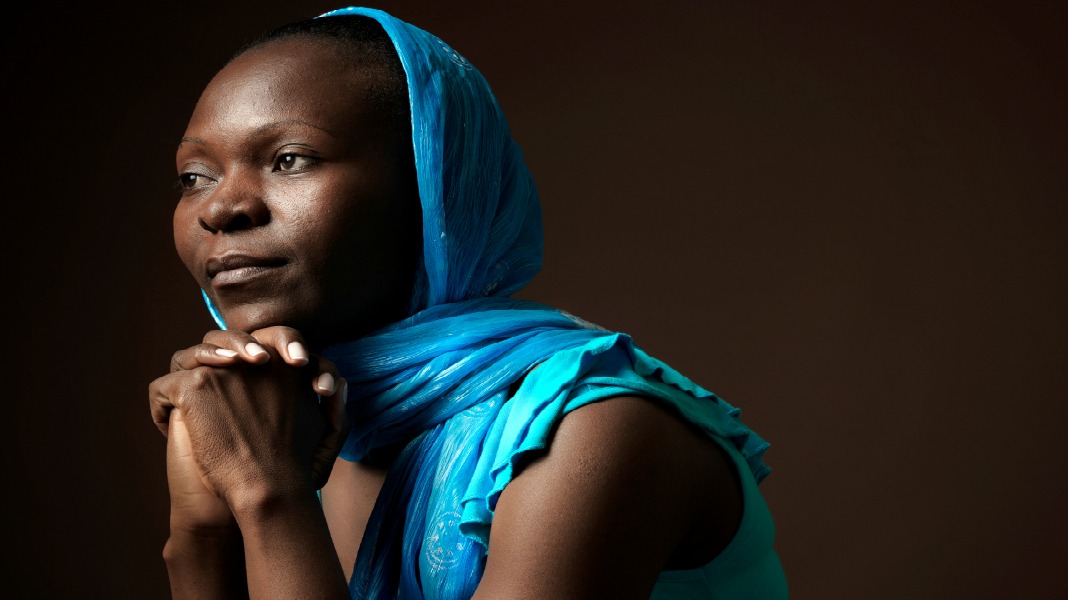
“Religion is belief in someone else’s experience. Spirituality is having your own experience.”
– Deepak Chopra
Before I made the decision to follow an indigenous African Spiritual system, I’d read plenty blogs and articles written by other black women compelled to ditch Christianity once and for all. Rarely did these tell-all’s follow up with in-depth narratives detailing how the decision to do so affected them after the fact. A little over a year ago when I decided to practice an indigenous spiritual system , I made the decision to write about my experiences, the good and the bad, in the hopes that my journey could provide some insight to others who may be in the midst of their own. Here’s how Odinani, an indigenous African Spiritual system out of Southwest Nigeria, challenged and changed the last year of my life.
The main difference between religion and spirituality is that religions are based on written doctrine while spiritual systems are not bound to a written text. In other words, there are no indigenous 10 commandments to govern your day to day life. Spirituality simply calls upon a person to willingly choose goodness, solely for goodness sake, which initially sounds like a very liberating experience but can create spiritual conflict for those of us who have been conditioned to believe that you prove your religiosity through works. Eventually, I would come to learn that although I had left religion, I had very much carried my religiousness with me out the door and I was trying to satisfy my religious devotion to duty through a belief system that didn’t call for my devotion, just my gratitude. This transition in thought, for me, was the most challenging to make.
Fearlessness
There isn’t an African dialect in existence that contains a direct linguistic equivalent for the Christian concept of the devil, which should explain why there is no devil, Satan or Lucifer in African Spirituality. This initially sounded like a great selling point but ultimately I would struggle with the lapse of clear-cut and defined evil in Odinani. When you come out of 25+ years of Christianity, the personified fear you associate with wrong or “sin” is not easily shaken and you find yourself struggling to take accountability for the less than righteous decisions you make. Sure, religion makes sin scary but it also makes sin not completely our fault because, well, the devil. Spirituality, on the other hand, encourages followers to make conscious decisions from a place of love and compassion, recognizing that they alone are in control of their thoughts and actions, and how the two ultimately impact the world around them. The world hadn’t prepared me to operate from a place of love, especially not in the face of fear. And Christianity had convinced me that if I feared hard enough, love would be the default agent behind my decisions. For the first time, I was learning to navigate the world without fear as my main motivation and that in and of itself was very scary.
Self-discovery
Organized religion doesn’t make much room for the self. The individual and expressions of individuality, apart from the musical persuasion, are not particularly celebrated in organized religion. The fewer questions a follower asks, the better. The less curiosity a person builds, the better. The word of God says what it says, and truthfully there is very little room for your personal interpretation. If I questioned who I was, what I believed in, what I stood for, who I stood with, etc. I was directed to the answers in the Bible. But when those answers weren’t sufficient, my faith was called into question. Over time, you learn to accept what you believe as well as what you don’t, and many Christians live somewhere within that complex duality. Odinani brought me a unique challenge in that who I was up to me to decide. My spiritual constitution, so to speak, for once hadn’t been pre-written on my behalf. I was being asked to know who I was and I had no idea how to come up with an answer. I was discovering myself for the first time in my late 20’s and in doing so, realized that most of who I thought I was based on who I was told to be and that needed to change.
Reconnection
We live mostly sealed off lives. Sealed off from one another, sealed off from nature, sealed off from the real world even. We communicate via electronic devices. We see each other through video. We experience everything from behind our cell phone screens. The disconnect actually desensitizes us to a lot of spiritual stimuli and keeps us out of sync from the world around us. A huge aspect of indigenous spirituality is a connection with nature and the world beyond the physical realm. Followers of indigenous spiritual systems seek personal connection with nature in an effort to develop an individual relationship with creation. This requires a re-syncing of sorts, a recalibration achieved through separating from social media, from friends, from family, and from work, and intentional uninterrupted submersion in nature. I found a quiet place at a nearby Japanese garden and every day for 3 months straight, I spent an hour there unplugged, in deep meditation near running water. Sometimes I would burn incense, other times I would recite mantras in my native tongue, but essentially I was trying to get my mind and body to be on one accord. I never knew how loud my mind could be until I tried to quiet it. 3 months would turn into 6 months before I would master transcendental meditation, becoming so familiar with nature that I began to notice all of the intricate ways she expressed herself. Ultimately it would be the greatest skill I would acquire as an adult, one that taught me to reconnect my body with my soul.
I have never felt more free than when I began to adhere to the spiritual system of my ancestors. The ability to apply real-life experiences and personalize my journey, the freedom from doctrine and dogma, the freedom from ignorance and fear was something I hadn’t experienced before. For once, I was being encouraged to explore and discover my own truth, no one was barking it at me. I was encouraged to ask questions and no one was waiting to tell me I was “going too deep” or “playing with God.” I felt trust in myself, I felt supported and I felt free.
Body & Mind
In indigenous African Spirituality, no real separation exists between the spirit world and the physical world (or the realm of matter). Wherever matter occurs, Spirit can be found, and the opposite is also true. African worldview teaches that all life is spiritual and both seen and unseen work together. It’s commonly believed that our internal voice, known in Western culture as our intuition, is the tie that binds them together. Guiding us through decisions, keeping us safe from danger and acting many times as the voice of reason. Unfortunately, not many of us are encouraged to listen to our intuition and begin silencing this voice from childhood, only to find ourselves struggling through adulthood without it. Following Odinani not only taught me to be more intuitive but has also helped me to be more in tune with the energies around me. Being able to sense when it’s time to leave a place, what type of company to avoid, who’s number to block, etc. has made certain situations so much easier to maneuver. Trusting my intuition strengthened my intuition. Who knew life got easier when you listened to yourself?
Religion makes us afraid of the word ritual, although religion is riddled with its fair share of rituals. We may not look at things like Baptism and Communion as rituals, but they’re as symbolically ceremonial as they come, and the same goes for any habitual practice that you set an intention for. To be very clear there’s absolutely nothing wrong with that. Rituals anchor us to our community and give life’s milestones structure and meaning. Once I worked through the stigma of the word itself, addressing the “paganized” perspective with which indigenous ritual and ceremony have always been portrayed, I was able to embrace the fullness of ritual in my spiritual experience. Learning various healing traditions and reconnecting with my paternal and maternal grandmothers through ancestral veneration, which has been the most rewarding part of my year-long journey.
Choosing to follow Odinani has changed most aspects of my life, how I parent my son, how I interface with friends, how I approach adversity, how I make important decisions and the list goes on. Had it not been for Odinani, there’s a good chance you wouldn’t be reading this right now due to the fact that an experience I had during devotion to my grandmother was the driving force behind my sudden career change. Practicing Odinani has improved my self-identify, strengthened my relationship with my family (all of whom are Christian), and helped me tremendously with lifelong anxiety. I feel a personal connection to my convictions and I feel a sense of autonomy that religion didn’t provide. I encourage every Black woman or man who may be curious about indigenous spirituality not to deny themselves the fullness of life’s experiences because of fear or shame. Indigenous spirituality makes no issue of different or “opposing” views and many people maintain their religious beliefs while incorporating indigenous practices into their daily lives. There is no sin in self-discovery and we empower everything we believe in, including ourselves.

Yolanda Adams Addresses Critics Of Her Sexy Wardrobe: 'I Do Not Have The Typical Gospel Singer Body'

Danielle Hazel Files Complaint Against Miss America, Miss World Over Rules Banning Mothers From Pageant

Tito Jackson, Beloved Jackson 5 Singer And Guitarist, Dead At 70: 'We Are Shocked, Saddened And Heartbroken'

MTV's 'Caught In The Act: Unfaithful' Host Tami Roman Gives Her Telltale Signs Of Infidelity [Exclusive]

Nicki Minaj Bashes ‘Spiteful & Evil’ Jay Z & Roc Nation For Booking Kendrick Lamar Over Lil Wayne For Super Bowl LIX

Despite Being The Best Selling New Country Album Of 2024, Beyoncé’s ‘Cowboy Carter’ Gets Zero CMA Nominations

Spice 'Queen Of Dancehall' Talks Colorism And Making History With ‘Mirror 25’: 'Black Girls Are Beautiful No Matter What' [Exclusive]

'RHOA' And 'Traitors' Star Phaedra Parks Joins ‘Dancing With The Stars’ Season 33
We've joined the BHM Digital family of websites and have updated our Terms of Service and Privacy Policy. By continuing to use this site, you agree to our updated Terms of Service and Privacy Policy.
- Entertainment
- Privacy Policy
- COOKIE SETTINGS
- Terms of Service
- Advertising
MadameNoire is a sophisticated lifestyle publication that gives African-American women the latest in fashion trends, black entertainment news, parenting tips and beauty secrets that are specifically for black women. Black women seek information on a wide variety of topics including African-American hair care, health issues, relationship advice and career trends - and MadameNoire provides all of that.
An Urban One Brand
MadameNoire ® Copyright © 2024 BossipMadameNoire, LLC All Rights Reserved | BHM Digital

Is There More to Life Than What You See?
Discover your highest purpose, searching for truth, experience the most sacred part of yourself, have you had a spiritual experience, the hero's journey.

Eternal, Unlimited, Divine
You are Soul, an eternal, creative being. Unlimited. Divine.
Does something inside you long to know life’s purpose? To make sense of the world around you?
Eᴄᴋᴀɴᴋᴀʀ is an active, individual, creative spiritual practice. A companion and road map for your journey home—to the heights of Self-Discovery and God-Discovery, and beyond.
Come along and discover the most secret part of yourself.
The key to spiritual freedom lies within you.
The Hero’s Journey of
Advanced spiritual living.
Have you ever felt a hunger for something you can’t even put words to?
What if you are actually on a journey—a quest—that has spanned the ages, continents, lifetimes? It has survived victories, tragedies, wealth and poverty, unimaginable gains and losses. Death and rebirth, time and again.
The journey is worth everything. Because you are the hero, and your saga continues until the quest is fulfilled.

Experience HU
The sound of soul.
A divine sound courses through all life—through every blade of grass, every galaxy, every atom of our bodies. HU is an ancient, sacred name for God—a carrier of love between Soul and God. When sung or chanted with an open heart, it opens the lines of communication to the most sacred part of yourself.
HU acts as a tuning fork, aligning Soul with higher states of love, creativity, healing, and awareness. It is the clear Voice of God, with the power to transform the lead of human consciousness into the gold of an enlightened Soul.
Find your own proof of the love and power of HU.
Teacher and Guide
Spiritual teachers from an ancient lineage walk among us today—Adepts who have mastered the spiritual laws of life, embodying them in thought, word, and deed. Teachers of the highest order.
These are the ECK Masters.
Chief among them is the Mᴀʜᴀɴᴛᴀ, the Living ECK Master. As an inner and outer spiritual teacher, his role is to awaken the God-knowledge already within you.
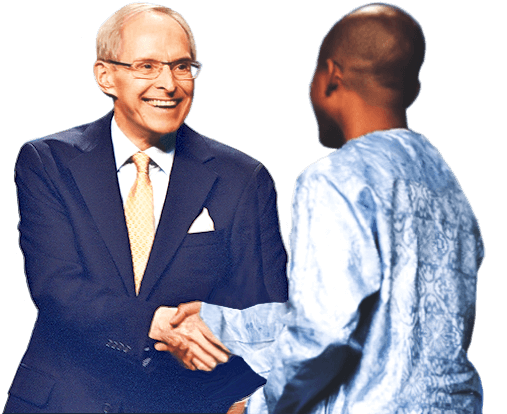
Awakening As Soul
E ckankar ’s spiritual living courses.
A true spiritual teaching strengthens the link between God and you. And it provides a guide to help make your individual journey as direct as possible.
When I found E CKANKAR , my heart said, “Home.” Michigan
ECK Soul Adventure ebooklet ECK Soul Adventure eBooklet Series
Looking for a burst of spiritual sunshine? For secrets of surviving and thriving in these times?
Each dynamic eBooklet in this series offers a quick tour of a key facet of spiritual living. Explore amazing stories, insights, questions-and-answers, and an inspiring spiritual exercise you can try today.
These short mobile-friendly PDFs cover a wide range of spiritual interests and needs. A delight to the eye and uplifting to every heart.
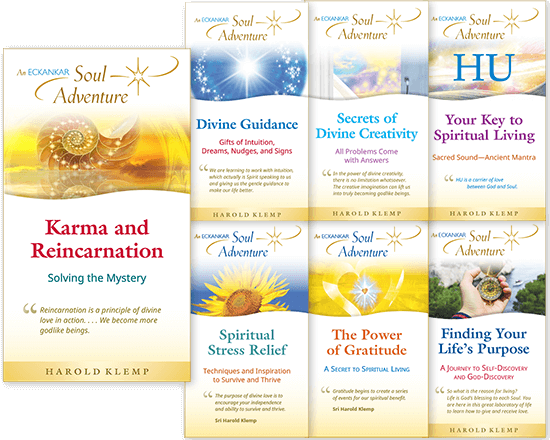
Explore Next Steps
Explore the free book ECKANKAR—Ancient Wisdom for Today . Discover how past lives, dreams, and Soul Travel can help you unravel the mysteries of life and aid you in your spiritual growth.
Looking for spiritual community? Dive deep with others of like heart at an ECK seminar, and take life to another spiritual level.
Make inner guidance a reality in any moment of your life. Discover simple, creative techniques that have the power to transform your life or simply create a better day. Try one out.
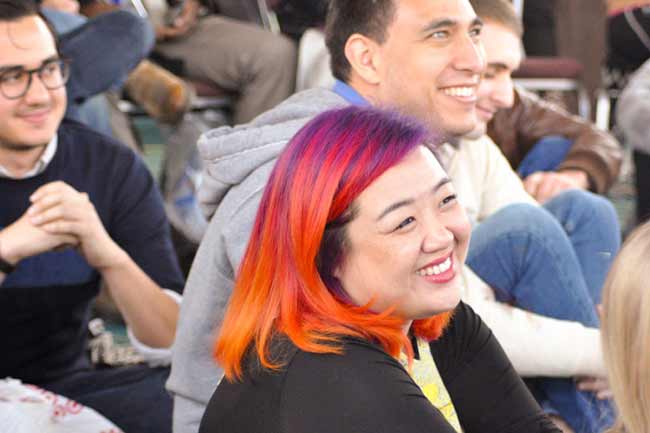
Copyright © 2020–2024 ECKANKAR. All rights reserved. The terms ECKANKAR, ECK, EK, MAHANTA, SOUL TRAVEL, and VAIRAGI, among others, are trademarks of ECKANKAR, PO Box 2000, Chanhassen, MN 55317-2000 USA. 200140
ECKANKAR Privacy Policy

Your trip begins.
Top 3 Churches to Visit in Nigeria for Spiritual Healing and Deliverance
Nigeria is home for religious tourism, with mega international churches that attract huge congregation and international visitors on daily basis for spiritual healing, deliverance and pilgrimage.
These mega churches are mostly headquartered in some of the biggest Nigerian cities like Lagos, Abuja, Warri, etc.
There are quite a lot of them, but here are the top three you should visit whether you are planning to come for deliverance, healing or just for religious tourism.
1. Christ MercyLand Deliverance Ministry
Christ MercyLand Deliverance Ministry is an international church based in Warri, Delta State, Nigeria. Founded by Jeremiah Omoto Fufeyin, Christ MercyLand Church is a powerful prophetic and deliverance ministry, also known as The Arena of Solution and Power .
Christ MercyLand Deliverance Ministry is located at K/m 5, Effurun – Warri, Sapele, Warri, Delta State, Nigeria.
The church also has a branch in Lagos at #120, Adeniyi Jones Avenue, Ikeja, (Inside Glonik Hotel) by Vulcanizer Bus Stop. However, main service is in Warri where the Man of God (Prophet Jeremiah Omoto Fufeyin) is primarily based.
International Visits to Christ MercyLand Deliverance Ministry, Warri, Nigeria
The church hosts visitors from around the world daily. Visitors lodge in the church hostel normally for a week and attend the church deliverance programs. There are also nearby hotels where visitors can lodge .
For most international visitors, you will need a visa to enter Nigeria. To apply for a Nigerian visa, two of the compulsory requirements are a letter of invitation to Nigeria and a reservation confirmation.
After getting a letter of invitation to Nigeria from us, we will also book a room near the church and send you a reservation confirmation. Payment for accommodation can be made on arrival.
The reason for the reservation confirmation is to enable you process a visa. There is hotel accommodation in the church premises, though you may need to put up in a hotel near the church (MercyLand Deliverance Ministry) for a couple of days after arrival before you can arrange and move to the church premises.
While in the church premises, you will be arranged for Prayerline and a one-on-one with the Man of God, Prophet Jeremiah.
Flight Arrangement
Getting an international flight to Warri, Benin City, Nigeria (BNI) where the church is located might be rare and very expensive. It is best to book a flight to Lagos, Nigeria (LOS) and then another flight from Lagos to Benin . Some times this will mean having a sleep over in Lagos.
If you will like to get help with planning your visit to MercyLand Deliverance Ministry, Warri, Nigeria, get in touch with us.
2. Liberation City, Ojota, Lagos
Liberation City is one of the top International Churches in Lagos, Nigeria also famous for spiritual healing, deliverance and prophetic ministry. The church is located at 9 Oshofisan Street, Off Odozi Street, By Ereke Bustop, Ojodu Berger, Lagos. The founder is Pastor Chris Okafor .
If you would like to visit a top Christian church in Nigeria for healing, deliverance or worship, then Liberation City, Lagos is one of the best options around. Pastor (Dr) Chris is a fiery Man of God very renowned for his prophecies, healing and deliverance ministry.
The church is well organized with lodges/dorms for both local and international visitors.
Visiting Liberation City, Lagos
If you are an international visitor, you may need a visa to enter Nigeria. So the first thing is to get your visa sorted. One of the main requirements to process a Nigerian visa is a letter of invitation from a host in Nigeria .
A visa on arrival is also possible, and here is how you can get one .
From the hotel, we will guide you to the church where you will make arrangements for prayerline registration and accommodation at the church premises if you want.
Liberation City church are very receptive and is a great option for religious tourists to Nigeria who need spiritual healing and deliverance.
3. The Synagogue, Church of All Nations, Lagos
The SCOAN, located at 1, Segun Irefin Street, Ikotun-Egbe, Lagos, is a preferred option for most visiting Nigeria for spiritual healing and deliverance.
Founder, Prophet TB Joshua , is one of the most famous prophets in the world also very renowned for miracles, spiritual healing and deliverance.
Here’s how to visit SCOAN, Lagos – Nigeria on your own .
Get Nigeria Visa on Arrival in 48 Hours
Fast-track Nigeria Visa on Arrival processing with guaranteed approval in 48 hours or less. 100% online. No embassy appointments or visa interviews.
Science of Spirituality , Nigeria

Science of Spirituality, Nigeria is the Nigeria Chapter of an international non-profit which is non-denominational, committed to spiritual development, peace and service to humanity. The organization has 37 centers scattered in towns and cities across Nigeria. The Nigeria Head Office is located in Lagos, Western Nigeria.
Science of Spirituality, Nigeria engages members of the public and offers various social services on health, humanitarian and disaster relief and conferences, etc. Nigeria has been torn apart by religious and ethnic conflicts. These two problems have manifested themselves in various forms of crisis such as insurgency, militancy, and insecurity in both the northern and southern parts of the country. Members of Science of Spirituality, Nigeria believe this situation is a byproduct of lack of understanding on the part of the general population that humanity is but one family. Science of Spirituality, Nigeria hopes to change the mindset of the general populace, and make them accept diversity as strength rather than a weakness - a situation that would lead to a more peaceful society. Members expect to advance their goals of unity and peace in Nigeria through conferences and mass orientation campaigns aimed at promoting understanding among religious groups and ethnic nationalities, and getting people to know about meditation and its effect on physical, mental and spiritual wellbeing. In Nigeria, the bridge needed is between Islam and Christianity; and between the country’s ethnic nationalities, particularly the major groups.
Contact Science of Spirituality , Nigeria
Moments Log
Blogging every moment of your life

The Mystical Traditions of African Voodoo: Spirits, Rituals, and Ancestral Connections
Table of Contents
The role of spirits in african voodoo practices, exploring rituals and ceremonies in african voodoo, ancestral connections and lineage in african voodoo, unveiling the mysteries of african voodoo: beliefs and practices.
Unveiling the Enigmatic World of African Voodoo: Embrace the Spirits , Rituals , and Ancestral Bonds
African voodoo, also known as vodou or vodun, is a mystical and spiritual tradition that has deep roots in the African continent. One of the key aspects of this ancient practice is the belief in spirits and their role in guiding and influencing human lives. In this article, we will explore the fascinating world of spirits in African voodoo practices and how they are revered and honored by practitioners.
In African voodoo, spirits are considered to be powerful entities that exist in a realm beyond the physical world. These spirits are believed to have the ability to interact with humans and influence their lives in various ways. They can bring blessings, protection, and guidance, but they can also bring misfortune if not respected or appeased.
The spirits in African voodoo are not seen as separate from the natural world but rather as an integral part of it. They are believed to inhabit natural elements such as trees, rivers, mountains, and even animals. This belief reflects the deep connection that African voodoo practitioners have with nature and their understanding of the interconnectedness of all living beings.
Rituals play a crucial role in African voodoo practices when it comes to communicating with spirits. These rituals are often elaborate and involve offerings, prayers, and dances. They are performed by trained priests or priestesses who act as intermediaries between the human and spirit realms.
During these rituals, practitioners invoke specific spirits and seek their guidance or assistance. Offerings such as food, drinks, or symbolic objects are presented to the spirits as a sign of respect and gratitude. The rituals are accompanied by rhythmic drumming and chanting, creating an atmosphere that is believed to attract the spirits and facilitate their communication with the human world.
Ancestral spirits hold a special place in African voodoo practices. They are believed to be the spirits of deceased family members who continue to watch over and guide their living descendants. Ancestral spirits are considered to be wise and benevolent, and their advice and blessings are highly valued.
Practitioners of African voodoo often maintain altars or shrines dedicated to their ancestors. These altars are adorned with photographs, personal belongings, and offerings to honor and connect with the ancestral spirits. Regular rituals and prayers are performed at these altars to maintain a strong bond with the ancestors and seek their guidance in daily life.
The role of spirits in African voodoo practices goes beyond individual guidance and protection. They are also believed to have a collective influence on the community as a whole. In times of crisis or important decisions, the community may come together to perform rituals and seek the guidance of the spirits. This collective approach reflects the communal nature of African voodoo and the belief in the power of unity and shared spirituality.
In conclusion, spirits play a central role in African voodoo practices. They are revered and honored as powerful entities that can influence and guide human lives. Through rituals and offerings, practitioners seek to establish a connection with these spirits and seek their blessings and guidance. The belief in ancestral spirits further strengthens the bond between the living and the deceased, creating a sense of continuity and interconnectedness. African voodoo is a rich and complex tradition that offers a unique perspective on the spiritual world and the role of spirits in human existence.

African voodoo, also known as vodou or vodun, is a mystical and ancient tradition that has been practiced for centuries in various parts of Africa. It is a spiritual belief system that encompasses a rich tapestry of rituals and ceremonies, all aimed at connecting with the spirits and honoring the ancestors.
One of the most fascinating aspects of African voodoo is its emphasis on the spiritual realm. Practitioners believe in the existence of a vast pantheon of spirits, each with its own unique powers and characteristics. These spirits are believed to have the ability to influence the lives of individuals and communities, and therefore, they are revered and respected.
Rituals and ceremonies play a central role in African voodoo. They serve as a means of communication with the spirits and are performed to seek their guidance, protection, and blessings. These rituals are often elaborate and involve a combination of music, dance, chanting, and offerings. They are conducted by highly trained priests and priestesses who have deep knowledge and understanding of the spiritual world.
One of the most well-known rituals in African voodoo is the ceremony of possession. During this ritual, a practitioner, known as a medium, becomes a vessel for a spirit to enter and communicate with the living. The medium undergoes a trance-like state and is believed to be temporarily possessed by the spirit. This possession is seen as a sacred and transformative experience, allowing the spirit to impart wisdom and guidance to the community.
Another important aspect of African voodoo is the connection to ancestors. Ancestors are considered to be powerful spiritual beings who can intercede on behalf of the living. They are believed to have a vested interest in the well-being of their descendants and are honored and revered through various rituals and offerings. Ancestral altars are commonly found in voodoo households, serving as a focal point for prayers and offerings to the ancestors.
The rituals and ceremonies in African voodoo are not only spiritual but also serve important social functions. They bring communities together, fostering a sense of unity and belonging. They provide a space for individuals to express their hopes, fears, and desires, and to seek solace and guidance from the spirits. In this way, African voodoo serves as a source of comfort and support for its practitioners.
It is important to note that African voodoo is often misunderstood and misrepresented in popular culture . It is not a dark or evil practice, as it is often portrayed. Rather, it is a deeply spiritual and complex belief system that has sustained African communities for generations. It is a way of life that offers solace, guidance, and a sense of connection to the spiritual world.
In conclusion, the rituals and ceremonies in African voodoo are a testament to the rich and mystical traditions of this ancient belief system. They provide a means of connecting with the spirits, honoring the ancestors, and seeking guidance and protection. African voodoo is a deeply spiritual practice that offers comfort and support to its practitioners, fostering a sense of unity and belonging within the community. It is a tradition that deserves to be understood and respected for its profound cultural significance.
African Voodoo, also known as Vodou or Vodun, is a mystical and spiritual tradition that has deep roots in the African continent. One of the fundamental aspects of this ancient practice is the belief in ancestral connections and lineage. In African Voodoo, the connection to one’s ancestors is considered sacred and is believed to play a crucial role in one’s spiritual journey.
In African Voodoo, it is believed that the spirits of the ancestors continue to exist and can influence the lives of their descendants. These spirits are seen as intermediaries between the human world and the divine realm. They are revered and honored through various rituals and ceremonies, as they are believed to possess wisdom, guidance, and protection.
Ancestral connections are established through a complex system of lineage. In African Voodoo, lineage is not limited to biological ties but extends to include spiritual connections as well. It is believed that individuals can be connected to their ancestors through bloodlines, as well as through initiation into specific spiritual lineages or families.
Initiation into a spiritual lineage is a significant event in the life of a practitioner of African Voodoo. It involves a series of rituals and ceremonies that connect the individual to their ancestors and the spiritual forces associated with their lineage. These rituals often include offerings, prayers, and invocations to call upon the spirits of the ancestors and seek their blessings and guidance.
The initiation process also involves the transmission of knowledge and teachings from the elders of the lineage to the initiate. This knowledge includes the understanding of sacred symbols, rituals, and practices that are specific to the lineage. Through this transmission, the initiate becomes a custodian of the ancestral wisdom and traditions, responsible for preserving and passing them on to future generations.
Ancestral connections in African Voodoo are not limited to the immediate ancestors but extend to the collective ancestral lineage of the community. This collective lineage is believed to hold immense power and wisdom, and it is through the connection to this lineage that individuals can tap into the spiritual forces that govern the universe.
The rituals and ceremonies associated with ancestral connections in African Voodoo are diverse and vary across different regions and communities. However, they often involve offerings of food, drinks, and other symbolic items to the ancestors. These offerings are seen as a way of nourishing and appeasing the spirits, as well as establishing a reciprocal relationship between the living and the dead.
Through these rituals, practitioners of African Voodoo seek the guidance and protection of their ancestors. They believe that by maintaining a strong connection to their lineage, they can access the wisdom and power of their ancestors to overcome challenges, find solutions to problems, and navigate the complexities of life.
In conclusion, ancestral connections and lineage play a vital role in African Voodoo. The belief in the existence and influence of the spirits of the ancestors is deeply ingrained in this mystical tradition. Through rituals, ceremonies, and initiation into spiritual lineages, practitioners establish and nurture their connections to their ancestors, seeking their guidance, protection, and wisdom. The ancestral lineage is seen as a source of power and knowledge, connecting individuals to the spiritual forces that govern the universe.
African voodoo, also known as vodou or vodun, is a mystical and ancient tradition that has captivated the imaginations of people around the world. This spiritual practice, deeply rooted in the African continent, is a complex tapestry of beliefs and practices that have been passed down through generations. In this article, we will delve into the mysteries of African voodoo, exploring its core beliefs and rituals, as well as its profound connection to ancestral spirits.
At the heart of African voodoo lies the belief in a vast pantheon of spirits, known as loa or lwa. These spirits are believed to be intermediaries between the human and divine realms, possessing the power to influence and shape the lives of individuals and communities. Each loa has its own distinct personality, preferences, and areas of expertise. Some are benevolent and bring blessings, while others are mischievous or even malevolent.
Rituals play a central role in African voodoo, serving as a means to communicate with the loa and seek their guidance and assistance. These rituals are often elaborate and involve music, dance, and offerings. One of the most well-known rituals is the voodoo ceremony, where participants gather in a sacred space, often outdoors, to invoke the loa through song, drumming, and dance. This communal experience creates a powerful energy that is believed to attract the presence of the spirits.
An essential aspect of African voodoo is the belief in ancestral connections. Ancestors are revered and considered to be a vital link between the living and the spirit world. It is believed that the spirits of the deceased continue to exist and can offer guidance and protection to their living descendants. Ancestor worship is a fundamental practice in African voodoo, with rituals and offerings dedicated to honoring and seeking the blessings of one’s ancestors.
The use of talismans and charms is another intriguing aspect of African voodoo. These objects, often made from natural materials such as bones, feathers, or stones, are believed to possess spiritual powers and provide protection or bring good fortune. Talismans are often personalized and charged with the energy of the individual, making them a potent tool for spiritual connection and empowerment.
Contrary to popular misconceptions, African voodoo is not associated with dark magic or malevolence. It is a deeply spiritual practice that seeks to establish harmony and balance between the physical and spiritual realms. The rituals and beliefs of African voodoo are deeply intertwined with the daily lives of its practitioners, providing a framework for understanding the world and finding solace in times of difficulty.
In recent years, African voodoo has gained recognition and respect as a legitimate spiritual tradition. Scholars and practitioners alike have worked to dispel the myths and stereotypes surrounding this ancient practice, highlighting its rich cultural heritage and profound spiritual significance. Today, African voodoo continues to thrive, offering a source of solace, guidance, and connection for those who seek its wisdom.
In conclusion, African voodoo is a mystical tradition that encompasses a rich tapestry of beliefs and practices. Its core beliefs in spirits, rituals, and ancestral connections provide a framework for understanding the world and seeking spiritual guidance. African voodoo is a deeply spiritual practice that seeks to establish harmony and balance between the physical and spiritual realms. It is a tradition that deserves recognition and respect for its cultural heritage and profound spiritual significance.

- Contributors
- What's New
- Other Sports
- Marie Claire
- Appointments
- Business News
- Business RoundUp
- Capital Market
- Communications
- Ibru Ecumenical Centre
- News Feature
- Living Healthy Diet
- Living Wellbeing
- Social Media
- Love and Relationships
- On The Cover
- Travel and Places
- Visual Arts
- BusinessAgro
- Executive Motoring
- Executive Briefs
- Friday Worship
- Youth Speak
- Corporate Social Responsibility
- Philanthropy
- Social Impact
- Environment
- Mortgage Finance
- Real Estate
- Urban Development
- Youth Magazine
- Life & Style
- Love & Life
- Travel & Tourism
- Brand Intelligence
- Weekend Beats
- Guardian TV

- Israeli strikes kill 92 in Lebanon
Church music in Nigeria: The journey so far – Part 1
Introduction The emergence of Music as a force in spiritualism is anchored on the fact that music has influential elements over people’s feelings, morals and character. Music’s dominant powers have the capacity to shape the nature of man’s conduct, character and emotion. Thus, music became a veritable tool for spiritual engagement and man’s connection with his Creator world over. This colloquium on Spiritual Music in Nigeria: The journey so far, is, therefore, to investigate and interrogate the state of Church music in Nigeria as Nigeria celebrates its 58th anniversary of nationhood. This presentation briefly highlights the nature of music during the pre-advent of Christianity in Nigeria, advent of Christianity in Nigeria—education and music, Christian/spiritual music during and after amalgamation of the northern and southern protectorates, church music at independence and types, sacred music during and after the Nigeria-Biafra war, new stylistic developments in spiritual music in Nigeria, the journey so far, contemporary trends in church music— music in church and church music, the Nigerian/African idioms, and samples of spiritual music and composers in Nigeria. Keywords: Church, Nigeria, spiritual, music.
Advent Of Christianity In Nigeria: Education And Music The Methodist Church was the first mission to arrive in Nigeria on September 24, 1842. Arriving Badagry, the Methodist Church established schools and churches. This three-prong approach of Christianity, Education and Music enabled the Wesleyan mission to not only Christianise Nigeria, but to also advance Western educational doctrine, and economy. The Anglican Church followed and arrived in Nigeria on December 19, 1842. According to Enemugwem (2017), the first known primary school in Nigeria was established by the Methodist mission in 1843 by Mr. & Mrs. William de Graft in Badagry with initial intake of 40 pupils. Thus, “the Methodist mission is a reference point in the history of Western education in Nigeria, as well as the country’s progress” (p.25). As a tool for proselytism and in conformity with the Wesleyan practice of hymn singing, anthems, chants and choruses, instructions in music were introduced. The areas of musical knowledge included staff notation, solfa notation, composition, organ playing, singing and choir management. The choir became an essential arm of the Church.
The hymns and choruses reflected and represented every season of the year and all the Church rituals and celebrations: Adoration and worship, God, the Lord Jesus Christ, the Holy Spirit, the Holy Scriptures, the Christian life, the Church (the commission, the Sacrament, marriage, baptism, death, ministers and teachers), the children, school and work, national and social life, times and seasons, and so on.
With the advent of Christianity, all African musical instruments were considered idolatry, and therefore, were not allowed to be used in the Church. It is of utmost importance here that the decision of the missionaries to brand these instruments idolatry was informed by their little knowledge about the culture and environment of the people of Nigeria. Most of the instruments banned by the missionaries were instruments that have not only accompaniment values, but are also ones with functional beauty and aesthetics that have the capabilities to aid true worship. Clapping, which was an accompaniment support in the traditional society was also stopped. The most popular ‘slogan’ in the church then was “For the Lord is in His holy temple, let all the earth keep silent before Him”. This was the doctrine or set of guidelines that was initially given to the Church.
No doubt, spiritual (sacred or church) music was introduced in Nigeria by early missionaries in the 19th century. The missionaries outlawed the use of traditional musical instruments, as well as singing songs in the indigenous language, stating (missionaries) that the use of local instruments is a form of satanic worship. Consequently, they introduced solmisation, which is the use of syllables in association with pitches in oral learning of melodies. Similar method was also used in teaching some persons how to play the organ to enable them accompany hymn singing with organ or piano during church services. Choir directors went through similar tutelage.
His Grace The Most Revd. Chimezuo O. N. Nwankpa, Archbishop of Uyo Archdiocese, METHODIST CHURCH NIGERIA. TO BE CONTINUED
In this article
- Onyee N. Nwankpa

cancel reply
You must be logged in to post a comment.
Why are you flagging this comment?
I disagree with this user
Targeted harassment - posted harassing comments or discussions targeting me, or encouraged others to do so
Spam - posted spam comments or discussions
Inappropriate profile - profile contains inappropriate images or text
Threatening content - posted directly threatening content
Private information - posted someone else's personally identifiable information
Before flagging, please keep in mind that Disqus does not moderate communities. Your username will be shown to the moderator, so you should only flag this comment for one of the reasons listed above.
We will review and take appropriate action.

Get the latest news delivered straight to your inbox every day of the week. Stay informed with the Guardian’s leading coverage of Nigerian and world news, business, technology and sports.
Please Enable JavaScript in your Browser to Visit this Site.

Tourism and Nigeria’s Journeys of Spirituality
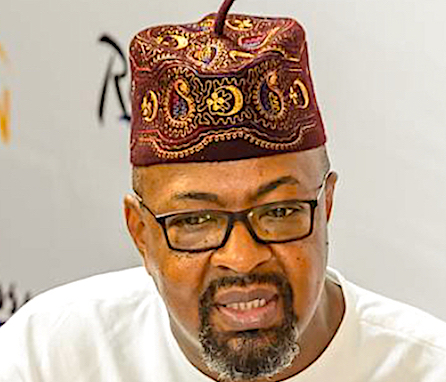
By Folorunsho Coker
The search for connection to the spiritual for attaining material success and well-being is possibly the most significant driver of tourism in Nigeria, from the earliest times. These journeys have been both domestic and inbound, with hordes of locals and waves of pilgrims from different parts of the world, believing in and seeking deep bonds with essences that serve their spiritual, and religious, needs across different locations in the country.
Religion and spirituality have inspired one of the fastest growing forms of tourism in the world which, on the home front, is as evident in the multitudes engaging in pilgrimages to the shrines of Osun Osogbo or Bilikisu Sungbo in Ijebu Ode, the long juju shrine in Arochukwu, the Api in Nsukka or even to the Guru Maharaji camp situated on the outskirts of Ibadan, among others. We equally have the massive followership of the two great Abrahamic faiths – Islam and Christianity – strewn across all towns and cities of Nigeria.
Economic data might not presently capture the peculiar details of the levels of activity involved in spiritual visits or journeys within and to Nigeria, as a sizeable dimension of the activities are within the ambits of the informal sector. Correlative data however shows how huge religious tourism is in the country. This can be gleaned from information around contributions to the national GDP of the hospitality, catering, travels and aviation, and related sectors.
From the dawn of creation, the human has essentially been a seeker, a journeying man or woman, who if not in search of physical sustenance to keep the body together, is on expeditions of finding meaning, or to understand the natural world, and that which is beyond the physical, and his or her place in it all.
As communities dispersed due to different pressures, people took along with them many rites that had been formed around spirituality to their new locations, from where they also kept making return journeys to their original homes and points of spiritual departure for renewal and reconnection to the source.
Tourism is closely linked to African traditional religions and spirituality, and Nigeria is location of and host to hundreds of festivals that arose from spiritual experiences, which people undergo travels from far and wide to partake in the spectacles involved. A few of the prominent ones among these rites – beyond those initially cited – include those of the Mmanwu, Omabe and Odo masquerades in Enugu State, the Omo-Ukwu in Ohaofia, and the highly revered Odun Ifa in Epe.
As earlier alluded to, the prime example of the Osun Osogbo festival commemorates the Osun river goddess believed to hold the powers of wealth and fertility, and it finds great resonance with foreigners, locals and people from Nigeria’s various Diasporas, who are persistently drawn to its annual fairs. In addition, the Udju Iwhurie Festival, also widely known as the Agbasa Juju Festival in Warri, is celebrated by the Agbarha people as tribute to Iwhurie, the god of war. And, the Iriji or New Yam festival is regularly held to appease the deities of harvest, after bountiful seasons in many parts of South-East Nigeria.
While there are equally other festivals arising from the worship of local deities like Sango, Ogun, and Obatala, etc. in South-West Nigeria that inspire domestic and inbound tourism, a number of other festivals have grown from religious roots to become great cultural enactments, such as the Argungu fishing festival, which has an Islamic ancestry and began as a way of ending hostilities between the Sokoto Caliphate and Kebbi Kingdom in 1934. There is also the Ojude Oba Festival in Ijebu Ode that was started as a way of paying homage to the Awujale, the paramount ruler of Ijebu land, on the third day after the Eid el-Kabir celebrations.
Religion and Journeys of Faith
People have engaged in journeys of faith from the earliest times, with numerous instances documented in the scriptural texts of Christianity and Islam from over two millennia back. In the Bible, some of the important religious journeys included the annual travels of Elkanah to Shiloh, as chronicled in the Book of Samuel, and the story of the travels of the Jews from all over the world to Jerusalem to observe the Passover, as recounted in the Act of the Apostles.
In Islamic lore, one of the most consequential journeys of the noble Prophet Muhammad (SWT) was the Hijra of 622 AD, from Mecca to Medina, signifying the human restoration from darkness to light; heathenism to true worship.
No doubt, while a very significant aspect of the religious tourism embarked upon by Christians and Muslims are externally oriented towards the homelands of these faith, whether in Mecca, Medina or Jerusalem, yet there have equally been a vital inbound aspect to these journeys. The country has become a magnet to many who travel from distant and near locations for faith-healing. This has been more evident, though, within the Christian faith.
Some statistics have pointed out that a huge percentage of travelers worldwide are interested in faith-based tourism. This is certainly true in Nigeria, with its very many religious communities, festivals, prayer camps, and affiliated industry, including trade and hospitality. For sure, faith-based tourism is big business in Nigeria. Instances abound of the vast inbound pilgrimages to religious grounds such as the Redemption Camp of Redeemed Christian Church of God (RCCG) in Ogun State for its worship sessions and Holy Ghost Congresses. Also, for the retreats and similar programmes of the Deeper Life Christian Life Ministry, and the meetings of the Living Faith (Winners) Church in Sango Ota, with its signature annual Shiloh fests. There are also the synods of the Anglican Communion and All Anglican Clergy Conferences that altogether pull massive attendances from across and outside the country. More so, there are the immense religious music fiestas that witness large local and foreign turnout, such as the yearly festival of the House on the Rock church, known as The Experience. A considerable religious economy has developed around these spiritual engagements and congregations – which ripple across their different locations. This is testified to in the activities of the Synagogue Church of All Nations (SCOAN) based in Ikotun, Lagos, with some estimates putting its services as cumulatively having up to 150,000 weekly attendees! This was largely during times before the passing of its charismatic founder, the late Pastor TB Joshua. A typical event of the church had a congregation made up of Nigerians and a substantial foreign following, comprising of distinguished personalities like Heads of State of African countries, among others. There are also the highly attended programmes and conventions of different Christian denominations in the country, such as the many adoration ministries of the Catholic Church in Nigeria. A number of these are led by such renowned clerics like Reverend Father Ejike Mbaka, Denis Attah (Agu Nwa Jesus), Basil Gbuzue, Paschal Tochukwu Edediegwu, Monsignor Emmanuel Edeh, etc. These are ministries that huge numbers of local and foreign faith travelers visit repeatedly, and quite often.
A major stretch of convergence for a sizeable segment of Nigerian religious/spiritual tourism is the Lagos–Ibadan Expressway corridor, which is occupied by more than twenty different religious prayer grounds, hence its designation as The Spiritual Highway. This is an expanse hosting the grounds of numerous denominations, such as the Redemption Camp of RCCG, the Prayer City of the Mount of Miracles and Fire Ministries (MFM), the Deeper Life International Conference Centre, the Foursquare Camp, etc. There is equally the very visible Nasfat Islamic Centre, making it a multi-religious and diverse corridor. Other religious camps that attract tourist traffic, both domestically and internationally, include those of Islamic groups like the Ansarudeen, Nawarudeen, Tijanniya, Shafau-deen in Islam, and Bebe Islam, etc., which are all dedicated to the production, propagation and consumption of spirituality in Nigeria.
The Economics of Religious Tourism
The phenomenon of religious or spiritual tourism has evolved what has been described as a ‘sacred places economy’, in which faith-based journeys and their associated rites have become a crucial source of livelihoods and jobs for an expanding number of people, even beyond the religious places.
This form of tourism certainly brings the benefits of commerce to the travel and aviation, hospitality, catering, transportation, and telecommunications sectors. And, the proceeds from tourist spending have ripple and multiplier effects across the economy, from agriculture to transactions through financial institutions.
A foremost instance of how religious tourism is a vital force in the fortunes of nations is evident in the Kingdom of Saudi Arabia, which is location to one of the largest religious tourism activities in the world – the Hajj and Umrah pilgrimages. These see to the visit of between two to three million people yearly (besides 2020 when the COVID-19 restriction was fully in place), adding about $12 billion to the country’s GDP annually. This is about 20% of the Kingdom’s non-oil GDP and 7% of the yearly GDP. In 2017, over 900,000 new jobs were created as a result of tourism, which is also projected to earn about $15 billion this year. Similarly, as it is location to some of the most sacred sites in Christianity, Judaism and even Islam, religious tourism in Israel is noted as having witnessed as many as five million tourist arrivals in 2019 (just before the advent of the coronavirus), and about $8.46 billion in earnings, which is over 2% of the national GDP.
With increased tourist inflows into and within Nigeria as motivated by religious tourism, this is set to expand economic activities, increase jobs, grow incomes and livelihoods, while also enhancing government revenues directly and indirectly through multiplier effects. More so, inflow of the much-needed foreign exchange will increase with the continuous appeal of Nigeria’s sacred destinations and spiritual attractions.
A perspective on the extent of the possibilities of religious tourism is evident in some estimates around an annual convention of the RCCG, which had over four million people cumulatively in attendance of a week-long event. This witnessed visitors from 35 countries, including 12 African and 23 non-African countries, who were claimed to have expended about $1.5 million on accommodation, hospitality, memorabilia, etc.
If this is extrapolated over the number of such activities routinely being hosted by the numerous denominations and religious groups, even within traditional worship, it speaks to the huge economic potentials of Nigerian religious tourism. And, if these possibilities are enlarged through the anticipated development of certain religious heritage sites, which are bound to become hubs of interest, the immense prospects of religious tourism in the country will definitely be on the uptick.
It is interesting to note that five spots are being considered as World Islamic Heritage Sites in Nigeria, and these include Hubbaren Shehu, which is Sheikh Usman Danfodio’s house in Sokoto State (an outstanding example of Islamic traditional architecture). There is equally the Gobarau Minaret in Katsina (a unique structure of its kind), the Sheikh Alimi Mosque complex in Ilorin, the Mbormi Battle Ground in Gombe and Fanisau Palace Mosque in Kano. These are sites already proposed to the World Islamic Heritage Committee for official recognition. The great extents of interest these attractions will definitely induce and journeys they will inspire are certainly not too difficult to imagine.
With the increasing pull of religion as a major category of tourism in the country, it is vital for the gamut of tourism practitioners in the country to pay greater attention to this ascendant form and partner with religious bodies to produce remarkable products and packages around it. Great lessons in this regard can be learnt from countries that have made huge successes of their economies of sacred places. This will go a significant way in enhancing Nigerian tourism, while creating a durable economic mine out of it.
Chief Folorunsho Coker, the Baba Eto of Yorubaland and Director General of the Nigerian Tourism Development Corporation, is the chief marketer of the Nigerian destination.

Breaking NEWS: To earn ₦11 million naira Monthly as a Nigerian is no longer complicated, acquire REGULAR Domains for $24 and resell it for $1000, do this many times over in one month
Click here to start.
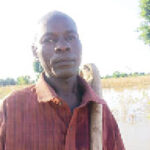
Cote d'ivoire
South africa, philippines, south korea, netherlands, switzerland, el salvador, latinoamérica y el caribe, puerto rico, trinidad & tobago, united states, new zealand.

- Login Settings
- How to Know God
- Train & Grow
- Opportunities
- Need Prayer
- Talk to a Mentor
- 4 Spiritual Laws Interactive
- Have You Heard of the Four Spiritual Laws?
Do you know that there are laws in our country that control the way we live? Find out more.
- What is Christianity?
Learn the basics of what Christians believe.
- FAQs About Christianity
Get the answers to frequently asked questions on Christian beliefs and practices.
- Dealing with Life's Questions
Explore answers to life's biggest questions.
- My Story: How My Life Changed
We all have a story. Read about individuals who have been transformed by faith.
- Issues I Face
The four symbols represent the central message of the Bible.
Spiritual Growth
Take the next step in your faith journey with devotionals, resources and core truths.
- Life & Relationships
Explore life's questions from trials and hardships to dating and marriage.
- Bible Studies
Find resources for personal or group Bible study.
- Share the Gospel
Understand evangelism and strategies to help share your faith story.
- Help Others Grow
Help others in their faith journey through discipleship and mentoring.
- Leadership Training
Develop your leadership skills and learn how to launch a ministry wherever you are.
- Language Resources
View our top Cru resources in more than 20 languages.
PRAYER is the heart of Great Commission Movement of Nigeria ministries.
Helping students know Jesus, grow in their faith and go to the world to tell others.
- Digital Ministry
We’ve seen firsthand how digital tools can be used for advancing the Great Commission.
FamilyLife provides transferrable, biblically-based help for you at every stage...
- Jesus Film Project
Helping to provide media tools, training, strategies and resources for evangelism in every needed language.
- LeaderImpact
We believe God puts leaders in positions of influence in all segments...
- Global Church Movements (GCM)
It focuses on working in partnership with churches on a non-denominational basis...
- Agape Humanitarian Aid Foundation (AHAF)
It focuses on a holistic approach to the Gospel to meet the physical, emotional, social and spiritual needs of vulnerable people.
- Police and Military Ministry
The Police and Military Ministry focuses on reaching and raising multiplying disciples for Christ through effective partnership with Churches in the barracks.
- Athletes in Action
A Christ follower on every team, in every sport and in every country.
- GCMN - Internship Application
- Reference Questionnaire-Intern
- Opportunity for Involvement
- Our Mission in Nigeria
Position and empower teams* of mission-minded people in the 36 States and Federal Capital Territory w
How we seek to journey together with everyone towards a relationship with Jesus.
Leading from values so others will walk passionately with God to grow and bear fruit.
- Our Leadership
Learn about our national, area and global leadership teams.
- Statement of Faith
What we believe about the gospel and our call to serve every nation.
Great Commission Movement of Nigeria 10 Secretariat Road Jos, Plateau State Tel: +234 -810-003-9399. Email: [email protected]; website: www.gcmnigeria.org Facebook: @gcmnig, Twitter: @gcmnig, Youtube: GCM Nigeria
Beginning With God
- GCMN Follow-Up Series
- Walking with Jesus - Follow Up Series
Core Christian Beliefs
- Holy Spirit Resource Kit
Everyone has their own spiritual journey with the Lord. How can we help you move forward in yours today?

Living the Spirit-Filled Life
Every day can be an exciting adventure for the Christian who knows the reality of being filled with the Holy Spirit and who lives constantly, moment by moment, under His gracious direction.

The Spiritual Starter Kit
The Spiritual Starter Kit is a free 7-part email series covering the most essential and foundational concepts of what it means to walk with Christ. Each email letter will help you understand something very important about your relationship with God.

How Your Personality Connects You With God
Is it possible that we don’t experience God like everyone else because God didn’t intend us to? Worship has the potential to be a part of everyday life, and God has hardwired each of us to experience Him in our own unique ways.
Go Deeper on Your Spiritual Journey

10 Basic Steps to Christian Maturity
Takes a new Christian from “who is Jesus?” to topics such as the Holy Spirit, prayer, witnessing, and a survey of both the Old and New Testaments from the Bible.

Transferable Concepts
These are the essential “How To's” which every Christian, newborn or with many years of maturity, needs to know and remember. These concepts are based on truth that can be simply and powerfully communicated from one person to another.

Living the Christian Life
These lessons cover the basic principles of living a Christian lifestyle and engaging in ministry that Cru has encouraged and developed for years. They are done on your own and are self-directed.

Fasting (intentionally abstaining from food) is a powerful way to connect with the Lord. Explore several step-by-step guides on fasting and learn how to apply this practice in your spiritual journey.

Prayer is a powerful act of talking to God, but how do you pray? How do you connect with God? Explore these articles about prayer and ways to apply them both individually and with other people.

Devotionals & Quiet Times
Don’t know how to spend time with God? These devotionals and articles will help you draw closer to the Lord while providing a variety of options to fit your personality.
More Resources for Growing Spiritually

Is God new to you? Are you struggling to find out what to do next? Beginning with God will connect you with resources and articles to help you in the next step of your journey.

What do Christians believe? What is the foundation of the Christian faith? Explore the core beliefs of the faith and how to apply them to your life.

© GCMN - A ministry of Campus Crusade for Christ International. All Right Reserved.
What are You Looking for?
- Agriculture
- Architecture
- Art and Design
- Banking and Finance
- Business Administration
- Construction and Real Estate
- Craftmanship and Trade Skills
- E-commerce and Digital Marketing
- Engineering
- Entertainment and Media
- Government and Military
- Information Technology
- Law and Legal
- Science and Mathematics
- Sports and Athletics
- Telecommunications
- Travel and Transportation
Spiritual Growth and Development: A Pastor’s Guide in Nigeria
Introduction.
Spiritual growth and development refer to the process of deepening one’s connection with the divine and expanding their spiritual awareness.
It is a lifelong journey that involves personal enlightenment, transformation, and self-discovery.
The importance of spiritual growth and development cannot be overstated in an individual’s life. Also, It provides meaning, purpose, and a sense of belonging.
It cultivates inner peace, joy, and fulfillment. It helps individuals navigate life’s challenges and develop resilience.
A pastor plays a crucial role in guiding spiritual growth and development. They are spiritual leaders who offer guidance, support, and encouragement to their congregations.
They teach the scriptures, lead worship, and provide pastoral care. Their role is to nurture the spiritual well-being of their flock, helping them deepen their faith and relationship with God.
Ultimately, spiritual growth and development are not limited to attending religious services or participating in rituals.
It encompasses all aspects of life and requires personal commitment and discipline. It involves engaging in prayer, meditation, studying scripture, and embodying the teachings of one’s faith.
In this blog post, we will explore the concept of spiritual growth and development, its importance, and the significant role that pastors play in guiding individuals on this transformative journey.
Embarking on this path can lead to a more meaningful and fulfilling life, one that is deeply anchored in spirituality and connected to the divine.
Understanding Spiritual Growth and Development
In order to effectively guide and support the spiritual growth and development of individuals in Nigeria, pastors must have a clear understanding of what these terms mean and the factors that contribute to them.
This section will explore the difference between spiritual growth and development, the stages involved, and the specific factors that influence them.
The Difference between Spiritual Growth and Development
While often used interchangeably, spiritual growth and development have distinct meanings.
Spiritual growth refers to the process of individuals deepening their relationship with God and increasing their understanding of spiritual concepts and truths.
On the other hand, spiritual development entails the practical application of this deepened understanding in one’s daily life, resulting in personal transformation.
Transform Your Career in Nigeria
Discover unmatched expertise with our personalized Career Consulting service. Navigate Nigeria’s job market with a strategy tailored just for you.
The Stages of Spiritual Growth and Development
Spiritual growth and development do not follow a linear path; rather, they involve various stages that individuals progress through at different rates.
Understanding these stages is essential for pastors in order to tailor their guidance and support to the specific needs of their congregants.
- Awakening: Individuals experience a realization of the existence and significance of the spiritual realm.
- Seeking: Individuals actively pursue spiritual knowledge and truth through various means, such as prayer, Bible study, and attending religious services.
- Discipleship: Individuals commit to living according to their faith and develop a strong foundation in biblical principles.
- Maturity: Individuals exhibit a deepened understanding and practice of their faith, displaying spiritual fruit in their character and actions.
- Transformation: Individuals experience a significant change in their worldview, values, and priorities, aligning them more closely with God’s will.
Factors that Contribute to Spiritual Growth and Development in Nigeria
Nigeria, with its diverse cultural and religious landscape, presents unique factors that contribute to spiritual growth and development:
- Religious Beliefs: The strong religious traditions and beliefs in Nigeria provide a fertile ground for individuals to explore and engage in spiritual growth.
- Community: The communal nature of Nigerian society fosters an environment of accountability and mutual support, aiding individuals in their spiritual journey.
- Education: Access to education, particularly religious education, equips individuals with the knowledge and tools necessary for spiritual growth.
- Leadership: Effective pastoral leadership plays a crucial role in guiding and nurturing the spiritual growth and development of individuals in Nigeria.
- Challenges and Trials: Nigeria’s socio-economic challenges and frequent experiences of adversity can serve as catalysts for spiritual growth and development.
- Access to Resources: Availability of religious materials, teachings, and resources contribute to the spiritual growth and development of individuals.
By understanding the dynamics of spiritual growth and development, as well as the specific factors that influence them in Nigeria, pastors can better equip themselves to guide and nurture their congregants’ spiritual journeys.
This understanding enables them to provide targeted support and guidance, ultimately fostering a vibrant and spiritually mature community.
Read: Youth Engagement: How Pastors in Nigeria Are Connecting
The Role of a Pastor in Spiritual Growth and Development
When it comes to spiritual growth and development, a pastor plays a crucial role in guiding individuals and nurturing the community.
Let’s explore the responsibilities of a pastor in facilitating spiritual growth and how they provide teachings, guidance, counseling, and support.
Responsibilities of a Pastor in Guiding Spiritual Growth and Development
- A pastor is tasked with leading their congregation towards a deeper understanding of spirituality.
- They are responsible for imparting knowledge, wisdom, and biblical teachings to the community.
- A pastor serves as a role model by exemplifying a strong and mature faith.
- They facilitate an environment that encourages individuals to grow spiritually and develop a close relationship with God.
- Through their leadership, pastors help people navigate through spiritual challenges and obstacles.
Providing Teachings and Guidance Through Sermons and Bible Study Sessions
One of the primary ways a pastor aids in spiritual growth is through sermons and Bible study sessions. These platforms allow them to provide teachings and guidance to their congregation.
- Pastors deliver inspirational and informative sermons that address various topics relevant to spiritual growth.
- They interpret biblical passages, ensuring a clear understanding for their congregation.
- Through Bible study sessions, pastors encourage engagement, discussion, and exploration of scripture.
- They help individuals apply biblical teachings to their everyday lives, fostering spiritual growth.
Offering Pastoral Counseling and Support to Individuals Seeking Spiritual Growth
In their role as spiritual leaders, pastors also provide counseling and support to individuals seeking to grow spiritually. Pastoral counseling helps individuals address personal struggles, doubts, and concerns.
- Pastors offer a listening ear and provide guidance based on biblical principles.
- They provide a safe space for individuals to express their emotions and seek spiritual clarity.
- Through counseling, pastors help individuals develop spiritual practices and disciplines.
- They offer encouragement, motivation, and prayer to those striving for spiritual growth.
Facilitating Community and Fellowship Among Church Members
A crucial part of spiritual growth and development is fostering a sense of community and fellowship. Pastors actively work towards creating an environment where church members can develop strong relationships.
- They organize and promote community events, gatherings, and retreats.
- Pastors encourage church members to connect with one another, fostering friendships and support networks.
- They facilitate small group discussions or prayer groups to encourage deeper connections.
- Pastors also ensure that all individuals in the congregation feel loved, valued, and included.
In short, the role of a pastor in spiritual growth and development is vital. They bear the responsibility of guiding individuals, imparting teachings, providing counseling, and fostering community.
Through their actions and teachings, pastors play a significant role in helping their congregation grow spiritually and deepen their relationship with God.
Read: Rural vs. Urban Pastoring: A Comparative Study in Nigeria
Your Unique Story, Perfectly Told
Don't let your dream job slip away with a generic resume. We craft personalized resumes and cover letters that highlight your unique strengths, making you unforgettable to Nigerian employers.
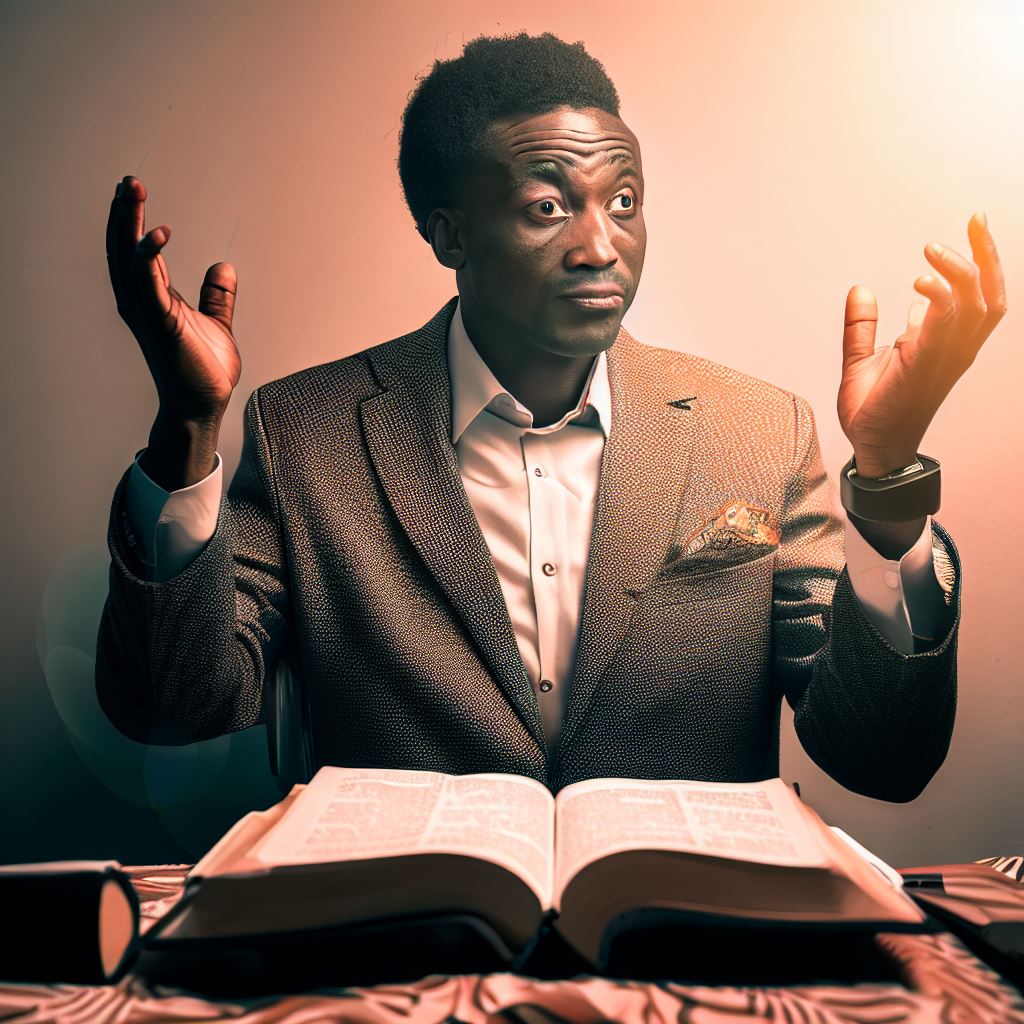
Challenges in Spiritual Growth and Development in Nigeria
When it comes to spiritual growth and development, Nigeria is not exempt from facing various challenges.
In this section, we will explore the cultural and societal influences that hinder spiritual growth, strategies to overcome religious and cultural barriers, and the importance of addressing skepticism and doubts in an individual’s spiritual journey.
Cultural and Societal Influences that Hinder Spiritual Growth
- The prevalence of materialism and the pursuit of wealth often divert individuals’ focus from their spiritual development.
- Traditional cultural practices can clash with religious teachings, creating confusion and hindrance in people’s spiritual growth.
- The influence of Western culture and globalization can lead to the adoption of secular values, undermining religious beliefs.
- Corruption within religious institutions, where leaders prioritize personal gain over genuine spiritual guidance, also hinder growth.
- The lack of access to quality education and information on spiritual matters can limit individuals’ growth potential.
Overcoming Religious and Cultural Barriers to Foster Spiritual Development
- Encouraging the teaching and practice of tolerance and understanding across different religious and cultural groups can help bridge the gaps.
- Promoting interfaith dialogues and events that foster unity can facilitate spiritual growth in a diverse society like Nigeria.
- Providing opportunities for individuals to receive proper education and guidance on their spiritual journey is crucial.
- Empowering religious leaders to prioritize spiritual growth and ethical teachings over personal gains will foster a positive environment for development.
- Emphasizing the importance of individual spiritual engagement and personal responsibility will help individuals overcome external barriers.
Addressing Skepticism and Doubts in a Person’s Spiritual Journey
- Creating safe spaces for individuals to express their doubts and skepticism will allow for honest exploration and growth.
- Encouraging open dialogues about spiritual questions and concerns will help individuals find answers and deepen their spirituality.
- Providing mentorship programs and support groups where individuals can gain guidance and reassurance on their spiritual journey.
- Offering resources such as books, articles, and online platforms that address common doubts and provide answers from various perspectives.
- Promoting critical thinking and rationality alongside faith, enabling individuals to reconcile their spiritual beliefs with logical reasoning.
In general, Nigeria faces several challenges in spiritual growth and development due to cultural and societal influences, religious and cultural barriers, and skepticism.
However, by recognizing these challenges and implementing strategies to overcome them, Nigeria can foster an environment where individuals can thrive in their spiritual journeys.
Read: Influence of Technology on the Pastor Profession in Nigeria
Strategies for Effective Spiritual Growth and Development
In order to experience effective spiritual growth and development, it is important to implement certain strategies.
These strategies can help individuals deepen their relationship with God and strengthen their faith. Here are some key strategies:
1. Encouraging personal prayer and devotion practices
Personal prayer and devotion are essential for spiritual growth. Pastors can encourage their congregation to set aside time each day for prayer and personal reflection.
This can be done through sermons, small group discussions, and providing resources for individuals to develop their own prayer routines.
2. Promoting regular involvement in church activities and ministries
Active participation in church activities and ministries can greatly contribute to spiritual growth.
Pastors can encourage their congregation to engage in various church programs, such as volunteering, attending Bible study groups, and participating in worship services.
This involvement fosters a sense of belonging and promotes spiritual development.
3. Emphasizing the importance of studying scriptures and understanding biblical principles
Studying scriptures and understanding biblical principles is crucial for spiritual growth.
Pastors can organize Bible study sessions, preach sermons that delve into scripture, and provide study materials to help individuals deepen their knowledge of the Bible.
Transform Your LinkedIn Presence
Don't let your LinkedIn profile blend into the crowd. We uniquely craft profiles that showcase your professional story, making Nigerian recruiters take notice like never before.
By understanding God’s word, individuals can apply its teachings to their lives and experience transformation.
4. Fostering a supportive and nurturing church community
A supportive and nurturing church community can greatly contribute to spiritual growth. Pastors can create an environment where individuals feel loved, accepted, and supported.
They can encourage the congregation to form relationships with one another, engage in fellowship activities , and care for each other’s spiritual well-being.
This sense of community provides encouragement and accountability for individuals on their spiritual journey.
In a nutshell, effective spiritual growth and development require intentional strategies.
By encouraging personal prayer and devotion practices, promoting regular involvement in church activities and ministries, emphasizing the importance of studying scriptures, and fostering a supportive church community, pastors can facilitate the spiritual growth of their congregation.
Implementing these strategies can help individuals deepen their relationship with God and develop a stronger faith.
Read: Pastoral Ethics and Leadership Principles in Nigerian Churches
Spiritual growth and development play a significant role in the lives of individuals in Nigeria. It is through this journey that individuals can find purpose and fulfillment in life.
A pastor has a crucial role in guiding and nurturing the spiritual growth and development of their congregation.
They are there to offer support, guidance, and teachings that can help individuals on their spiritual path.
It is important for individuals to prioritize their spiritual growth and seek guidance from their pastors.
By doing so, they can deepen their connection with God, find inner peace, and navigate the challenges of life with faith and resilience.
As we reflect on the significance of spiritual growth and development, let us remember the power it holds in transforming lives and communities.
May we continue to seek spiritual growth and support one another on this journey, under the guidance of our pastors in Nigeria.
Legal Aspects and Regulation of Pastoring in Nigeria Today
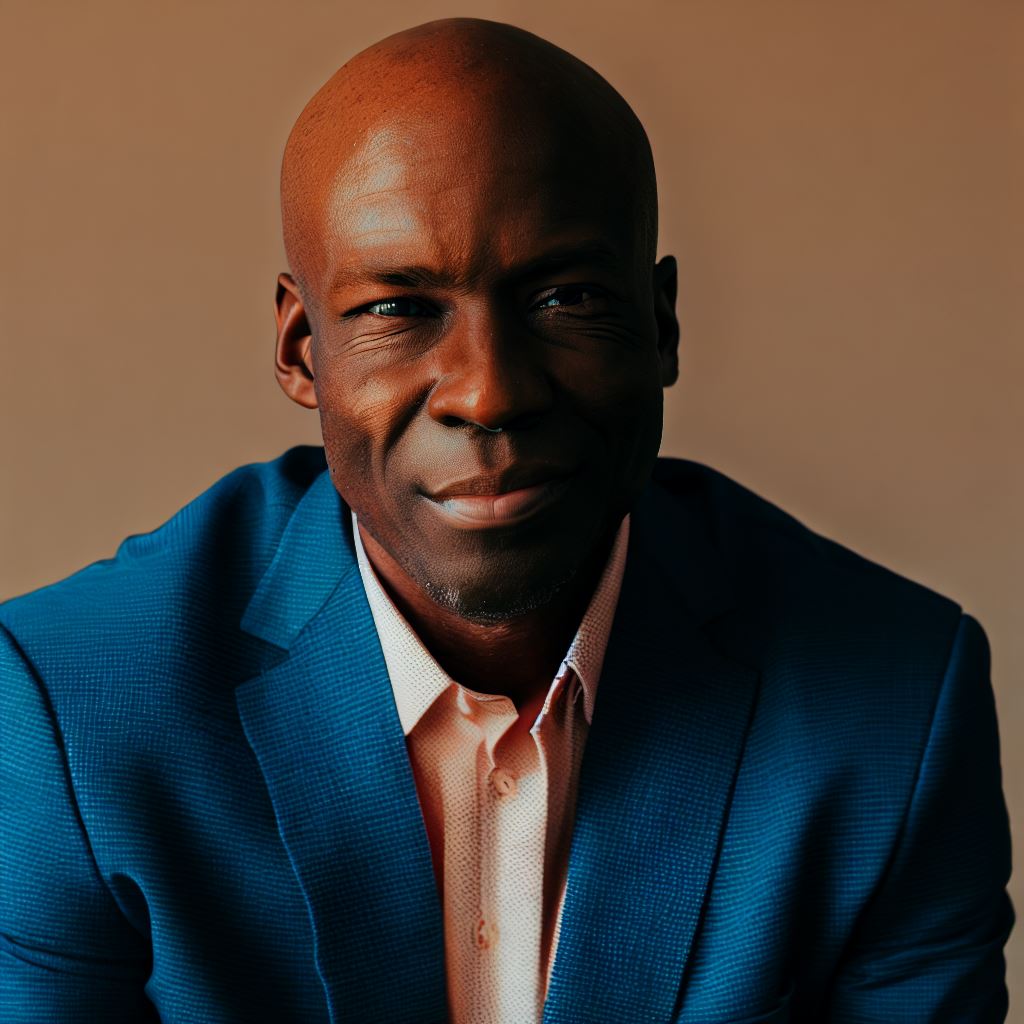
Building a Community: A Nigerian Pastor’s Strategic Approach
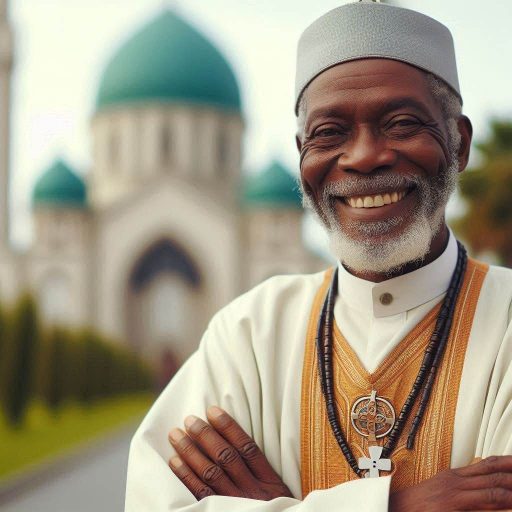
Top Religious Professions Making an Impact in Nigeria
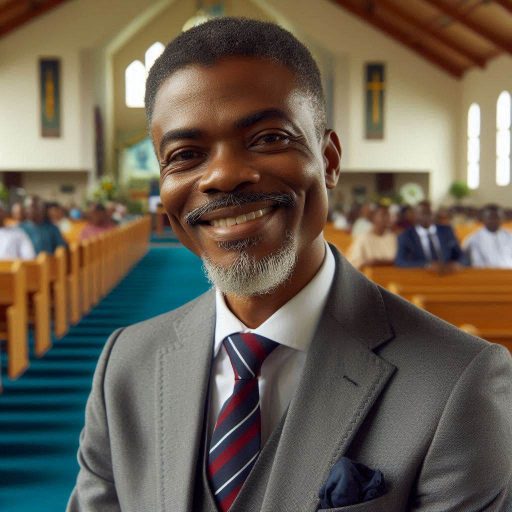
How to Serve as a Pastor and Impact Lives in Nigeria
Leave a reply cancel reply.
Your email address will not be published. Required fields are marked *
Your Name *
Email Address *
Save my name, email, and website in this browser for the next time I comment.
Submit Comment
Global site navigation
- Capital Market
- Celebrities
- Celebrity biographies
- Messages - Wishes - Quotes
- Family and Relationships
Local editions
- Legit Nigeria News
- Legit Hausa News
- Legit Spanish News
- Legit French News
Lagos Prophet, Israel Adewale, Speaks on His Spiritual Journey and ‘Covenant Water’
Prophet Israel Ajadi Adewale, popularly known as Baba Eri is the founder of Forever in Christ Evangelical and Deliverance Ministry headquarters in Ikorodu, Lagos
PAY ATTENTION: The 2024 Business Leaders Awards Present Entrepreneurs that Change Nigeria for the Better. Check out their Stories!
In an exclusive interview with Legit.ng he shared his his remarkable journey from a Muslim upbringing to becoming a revered prophet and details about his 'Covenant Water' (Omi Eri).
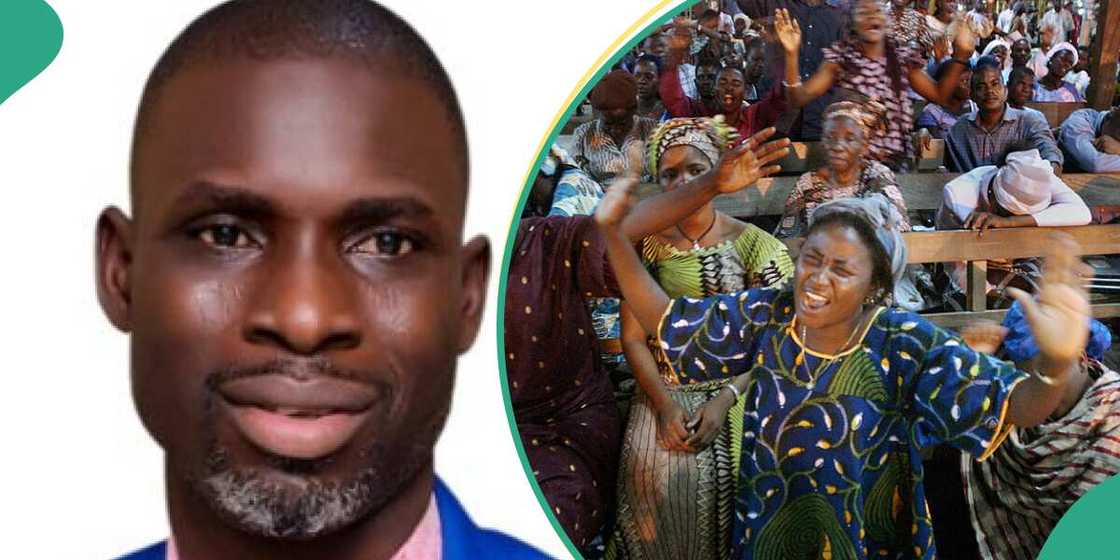
From Struggles to Success
He recounted that his first few years in Lagos was not without challenges as he worked as a bus conductor eventually rising to become a bus owner.
Divine Intervention
His journey to ministry he said was unexpected, revealing that he embraced his spiritual side during a period of illness.
"After being taken to a church for prayers, I experience a miraculous healing and received a clear message from God about his purpose
After embracing Christianity, I adopted the name 'Eri,' meaning "testimony," signifying the wonders God was set to perform through him."
The Genesis of 'Covenant Water'
On his 'Covenant Water' he said it was divinely inspired.

'It's frightening': YouTubers split over OpenAI's video tool Sora
He recounted:
" In a dream, I saw myself producing water that would be accepted worldwide. This marked the beginning of the miraculous water's journey, which is known for its healing properties and effectiveness in resolving various challenges."
Global Impact and Outreach
Isreal said his 'Covenant Water' now has a global reach, with testimonies pouring in from people across the world.
He claimed:
"Through a weekly program called 'Satide Agbara' (Power Saturday), listeners from different countries participate in prayer sessions, using the water to invoke miracles in their lives."
Empowering the Community
Aside the life of ministration, he said the church has a water factory that provides employment opportunities, offers free eye checks, and plans to launch a Bible school and a hospital with free services for pregnant women.
He concluded:
"My philosophy is rooted in the belief that giving back to the community attracts more blessings."

Economic hardship: Popular Reps member Philip Agbese cancels birthday celebration
Woli Arole sends message to gospel singers
In another report via Legit.ng, Woli Arole opened up on his transition from an on-stage comedian to a prophet.
The content creator also disclosed reasons churches don't have issues inviting him to their events.
In another video, Woli Arole reacted to the hardship and current economic downturn in Nigeria .
PAY ATTENTION: Unlock the best of Legit.ng on Pinterest! Subscribe now and get your daily inspiration!
Source: Legit.ng
Dave Ibemere (Senior Business Editor) Dave Ibemere is a senior business editor at Legit.ng. He is a financial journalist with over a decade of experience in print and online media. He also holds a Master's degree from the University of Lagos. He is a member of the African Academy for Open-Source Investigation (AAOSI), the Nigerian Institute of Public Relations and other media think tank groups. He previously worked with The Guardian, BusinessDay, and headed the business desk at Ripples Nigeria. Email: [email protected].

- Life & Family
- About us Advertise Privacy policy

- About Us Advertise Privacy

Advertisement
Nigeria Needs a Stronger Psycho-Spiritual Support System: Founder of Catholic Entity
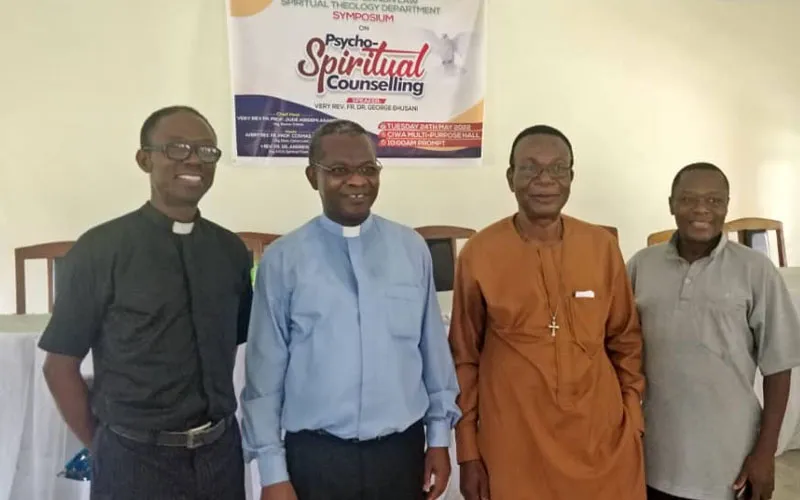
By Agnes Aineah
Abuja, 30 May, 2022 / 10:50 am (ACI Africa).
Everyone in Nigeria needs psycho-spiritual support owing to the country’s political and economic instability that has plunged the population into depression and other forms of mental challenges, the founder of the Psycho-Spiritual Institute (PSI) has said.
Fr. George Ehusani who founded the Catholic entity that specializes in psycho-trauma healing told ACI Africa that all Nigerians have been affected, one way or the other, by what has been described as a genocide , high levels of poverty and unemployment as well as political tension that has spread to all corners of the West African nation.
“All over Nigeria, there is tension. Violence has spread everywhere. People’s relations have been kidnapped. Friends and families have been murdered. People are aggrieved because of rising cases of unemployment and poverty,” Fr. Ehusani said in the Thursday, May 26 interview.
He added, “One way or the other, everyone is affected by the ongoing instability in Nigeria and everyone needs therapy.”
The Nigerian Catholic Priest said that the mere thought of what is happening in Nigeria scares even those who have not had a personal experience with the militants who are wreaking havoc in various parts of the country.
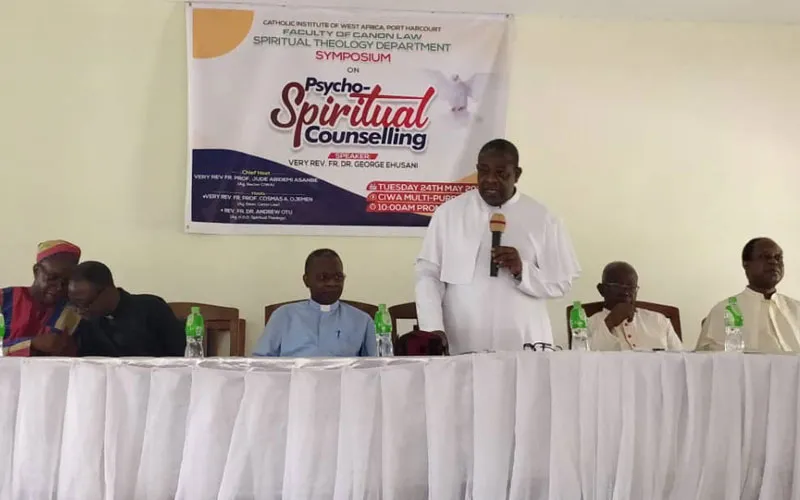
“It scares us to hear about attacks in the media every time. A day hardly passes by without hearing of an attack, a kidnapping or murder. People who hear about these things are affected. Priests, Imams, Pastors and people taking care of victims of violence in camps are all affected. The general public getting bad news every day is affected,” he said.
In Nigeria, PSI enrolls all experts who interact with victims of violence and various forms of abuse. These include the security personnel, health experts, religious leaders, social workers, and psychosocial experts.
More than 400 experts in Nigeria have successfully completed the training, which was started six years ago and takes a week of in-class training and another six weeks of practical experience.
In the May 26 interview with ACI Africa, Fr. Ehusani said that everyone who handles people who have undergone a traumatic experience needs to be equipped with skills to handle the victims.
More in Africa
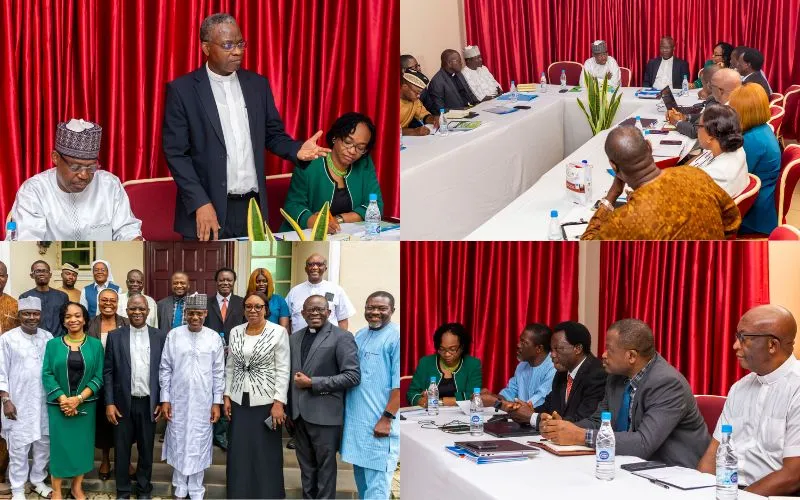
Expansion of Kenya-based Catholic Psycho-Spiritual Institute to Nigeria in “final stage”: Founder
“The police, for instance, need to know how to talk to rape victims, and others who have gone through any form of traumatizing experience. Here in Nigeria, you find a police asking questions such as ‘what were you wearing when you were raped’ or ‘what did you expect after visiting the man’s house’. This is not the way to talk to a rape victim,” the founder of PSI said.
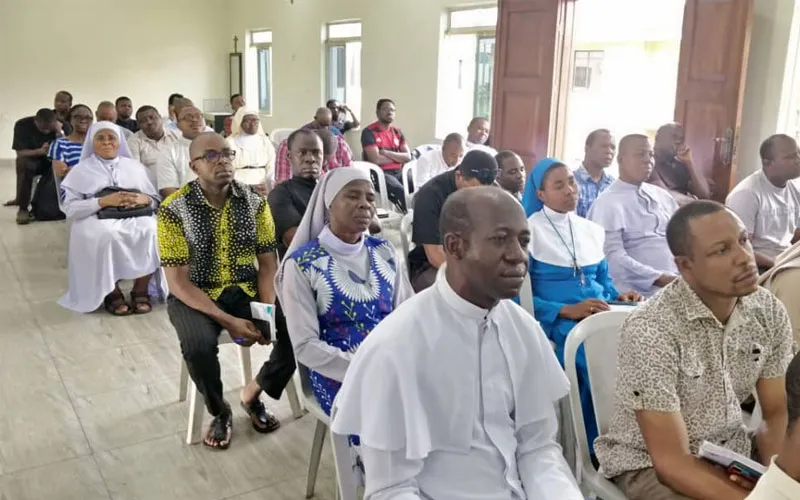
“All the victim needs at the first encounter with the police, a counselor, a spiritual leader or anyone they go to after undergoing a traumatic experience, is company, not judgment. It helps to just touch their hand and to show that you care,” Fr. Ehusani said.
Established in 2013 by the Lux Terra Leadership Foundation in collaboration with Mission Aachen, PSI trains experts in Psycho-Spiritual Therapy and Christian Counseling for English-Speaking African Countries.
The Catholic entity is a response to “an urgent need” to offer professional psychological and spiritual care to the increasing number of Clergy, women and men Religious, and lay pastoral agents who now and again find themselves in difficult life situations of an emotional and psychological nature, “but who often do not find adequate support”, according to information provided on the institute’s website .
While PSI is a short course, Lux Terra Leadership Foundation, on the other hand, offers a two-year Master’s program for experts who graduate and psychotherapists.
Since its inception in 2012, seven cohorts have already graduated from the Master’s Program, which is now offered at the Nairobi-based Marist International University College , a Catholic institution of higher learning affiliated to the Catholic University of Eastern Africa (CUEA). Apart from Nairobi, Lux Terra Leadership Foundation also has offices in the Archdiocese of Abuja, Nigeria.
In Kenya, the Institute has enrolled students from troubled parts of Nigeria, South Sudan, the Democratic Republic of Congo (DRC), Rwanda, Ivory Coast, Sierra Leone, and Burkina Faso, among others.
Graduates proceed to provide psycho-spiritual support to victims of attacks in their respective countries, Fr. Ehusani says.
PSI provides a master’s degree in psycho-spiritual therapy, where many Priests and women and men Religious are trained to become experts in giving psychological and spiritual support to people who are suffering in the mentioned countries.
(Story continues below)
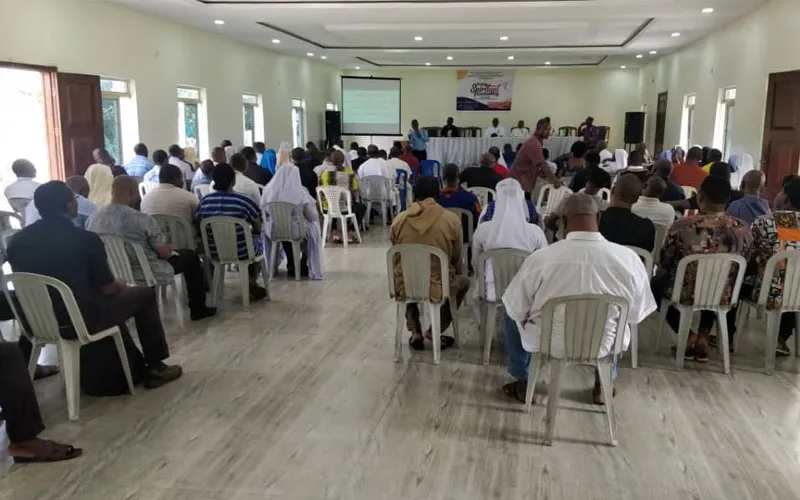
Fr. Ehusani told ACI Africa that the plan, since inception, was to offer the Master’s program in Eastern Africa, in Southern Africa and in Western Africa. Owing to insufficient funds, however, the two-year program has only picked up in Nairobi.
The Abuja-based Catholic Priest who is the Executive Director of the Lux Terra Leadership Foundation said the Master’s program, which requires students to stay at the institution through the entire two years, is costly, and that not many Religious Congregations can fully support their members through the program.
“We have always wanted to have many campuses across Africa. But at the moment, we only operate in Kenya. The course is very expensive since it requires our students to stay at the institution. They stay together, eat together, pray together and grow mentally before they graduate,” Fr. Ehusani told ACI Africa during the May 26 interview.
He added in reference to the course, “We acknowledge that it has only healed people that can help others to heal. And each one of us has some underlying issues from which we need to heal. Therefore, our students are taken through the healing process before anything else in the training process.”
At the campus, students are also linked to personal spiritual advisors and counselors who they talk to often. They are also organized in a support group where they embark on a spiritual journey together, Fr. Ehusani said, and explained, “The program is structured in a way that it has to be in-person. It cannot be completed online, hence the high cost.”
Fr. Ehusani recently hosted a symposium on Psycho-Spiritual Integration at the Catholic Institute of West Africa (CIWA) in Port Harcourt, Nigeria, where he explained the importance of integrating psychotherapy into spiritual care on the one hand, and integrating spirituality into psychotherapeutic care on the other.
At the end of the Tuesday, May 24 symposium, participants who included lecturers and students from both the Port Harcourt and the Obehie campuses of CIWA, expressed their desire to have the two-year Master’s Program offered in Nigeria as well.
Fr. Ehusani recognized the dearth of psycho-spiritual therapists in the West Africa country, saying, “Even here at CIWA, where there could be hundreds of students, there is only one counselor. This one counselor is not enough to handle the psycho-spiritual needs of the entire student population, let alone staff. Again, the counselor is not trained to handle all aspects of psycho-spiritual care.”
The award-winning Catholic Priest said that different psycho-spiritual therapists deal in different areas, including trauma healers, those who handle alcoholism, drug abuse, industrial needs, and forensics, among others.
He said that with Nigeria experiencing a rising number of mental challenges, the country needs “thousands” of trained psycho-spiritual therapists, including Priests to listen to confessions.
“There are people who commit the same sin over and over again and it only requires a Priest who is trained in psycho-spiritual therapy to understand that such people have some form of addiction and to give them relevant support,” Fr. Ehusani said.
The challenge, he said, includes lack of awareness on mental challenges, and lack of adequate funding of initiatives that focus on mental health.
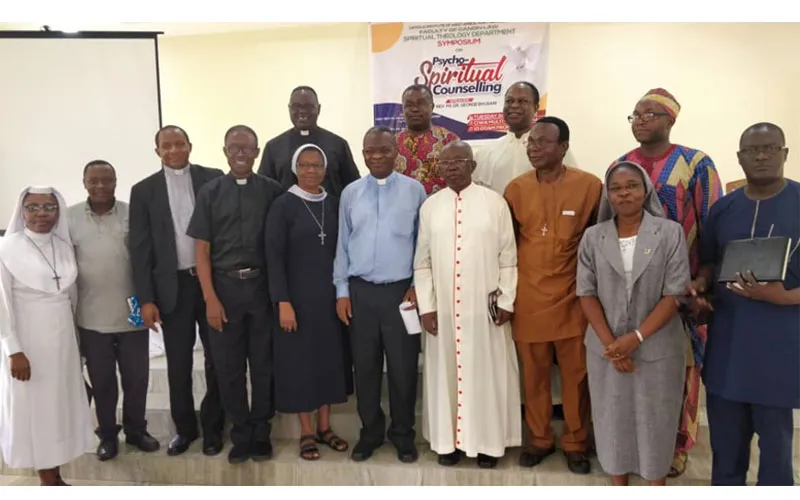
“Here, we have numerous foundations that support HIV/AIDS, heart conditions, diabetes, and many others. But very few foundations support the depressed, alcoholics and people suffering from substance abuse,” Fr. Ehusani said.
He underlined the need for integrating psychotherapy into spiritual care, saying, “It is difficult to cure a person’s mental wellbeing if you don’t look at their spirituality as well.”
“About 100 years ago, a lot of scientific research was done by the Church people in monasteries. It was in the context of religion that the soul was taken care of until scientists began to isolate themselves from the Church,” the Nigerian Catholic Priest said.
He added, “Today, experts recognize that spirituality plays a big role in a person’s mental well-being. Many who ignore this aspect find themselves confused between a patient’s psychological and spiritual needs.”
“At the Lux Terra Leadership Foundation, we have realized that spirituality and psychology can be studied together,” Fr. Ehusani told ACI Africa during the May 26 interview.
- Catholic News ,
- Catholic News in Africa ,
- Catholic Church in Nigeria ,
- Psycho-Spiritual Institute (PSI) ,
- Fr. George Ehusani ,

Agnes Aineah is a Kenyan journalist with a background in digital and newspaper reporting. She holds a Master of Arts in Digital Journalism from the Aga Khan University, Graduate School of Media and Communications and a Bachelor's Degree in Linguistics, Media and Communications from Kenya's Moi University. Agnes currently serves as a journalist for ACI Africa.
Our mission is the truth. Join us!
Your monthly donation will help our team continue reporting the truth, with fairness, integrity, and fidelity to Jesus Christ and his Church.
You may also like

Catholics Ascend to Mount Olives, Site of Jesus’ Ascension, Only Day They Can Use Chapel Currently Under Muslim Control
“I’m excited to have come to pray in the actual place of the Ascension... I want to be closer to...

Catholics in East Timor Welcome Pope Francis to their Island "oasis" of Religious Vocations
Speaking in Dili's cathedral, Pope Francis challenged East Timor's Catholic leaders to renew evangelization efforts, declaring that the nation's position...

Pope Francis Arrives in East Timor, Asia’s Youngest and Most Catholic Country
Francis is the first pope to visit East Timor since it gained independence from Indonesia in 2002, becoming the first...
- Hausa Edition
- Conferences
- LeVogue Magazine
- Business News
- Print Advert Rates
- Online Advert Rates

- Entertainment
- National Economy
Tourism And Nigeria’s Journeys Of Spirituality
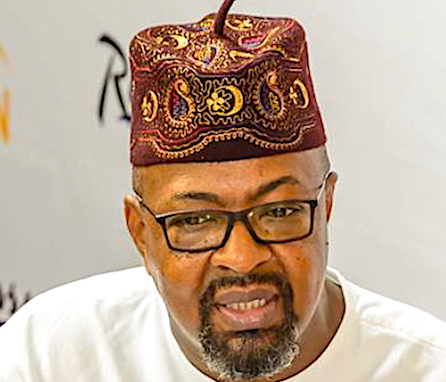
The search for connection to the spiritual for attaining material success and well-being is possibly the most significant driver of tourism in Nigeria, from the earliest times. These journeys have been both domestic and inbound, with hordes of locals and waves of pilgrims from different parts of the world, believing in and seeking deep bonds with essences that serve their spiritual, and religious, needs across different locations in the country.
Religion and spirituality have inspired one of the fastest growing forms of tourism in the world which, on the home front, is as evident in the multitudes engaging in pilgrimages to the shrines of Osun Osogbo or Bilikisu Sungbo in Ijebu Ode, the long juju shrine in Arochukwu, the Api in Nsukka or even to the Guru Maharaji camp situated on the outskirts of Ibadan, among others. We equally have the massive followership of the two great Abrahamic faiths – Islam and Christianity – strewn across all towns and cities of Nigeria.
Economic data might not presently capture the peculiar details of the levels of activity involved in spiritual visits or journeys within and to Nigeria, as a sizeable dimension of the activities are within the ambits of the informal sector. Correlative data however shows how huge religious tourism is in the country. This can be gleaned from information around contributions to the national GDP of the hospitality, catering, travels and aviation, and related sectors.
From the dawn of creation, the human has essentially been a seeker, a journeying man or woman, who if not in search of physical sustenance to keep the body together, is on expeditions of finding meaning, or to understand the natural world, and that which is beyond the physical, and his or her place in it all.
As communities dispersed due to different pressures, people took along with them many rites that had been formed around spirituality to their new locations, from where they also kept making return journeys to their original homes and points of spiritual departure for renewal and reconnection to the source.
Tourism is closely linked to African traditional religions and spirituality, and Nigeria is location of and host to hundreds of festivals that arose from spiritual experiences, which people undergo travels from far and wide to partake in the spectacles involved. A few of the prominent ones among these rites – beyond those initially cited – include those of the Mmanwu, Omabe and Odo masquerades in Enugu State, the Omo-Ukwu in Ohaofia, and the highly revered Odun Ifa in Epe.
Related News
Cardoso, buhari mismanaged the economy, fix it, go the whole hog or shut up, ‘do not sit’: a lack of seating areas, effects of economic climate on women and girls.
As earlier alluded to, the prime example Qof the Osun Osogbo festival commemorates the Osun river goddess believed to hold the powers of wealth and fertility, and it finds great resonance with foreigners, locals and people from Nigeria’s various Diasporas, who are persistently drawn to its annual fairs. In addition, the Udju Iwhurie Festival, also widely known as the Agbasa Juju Festival in Warri, is celebrated by the Agbarha people as tribute to Iwhurie, the god of war. And, the Iriji or New Yam festival is regularly held to appease the deities of harvest, after bountiful seasons in many parts of South-East Nigeria.
While there are equally other festivals arising from the worship of local deities like Sango, Ogun, and Obatala, etc. in South-West Nigeria that inspire domestic and inbound tourism, a number of other festivals have grown from religious roots to become great cultural enactments, such as the Argungu fishing festival, which has an Islamic ancestry and began as a way of ending hostilities between the Sokoto Caliphate and Kebbi Kingdom in 1934. There is also the Ojude Oba Festival in Ijebu Ode that was started as a way of paying homage to the Awujale, the paramount ruler of Ijebu land, on the third day after the Eid el-Kabir celebrations.
Religion and Journeys of Faith
People have engaged in journeys of faith from the earliest times, with numerous instances documented in the scriptural texts of Christianity and Islam from over two millennia back. In the Bible, some of the important religious journeys included the annual travels of Elkanah to Shiloh, as chronicled in the Book of Samuel, and the story of the travels of the Jews from all over the world to Jerusalem to observe the Passover, as recounted in the Act of the Apostles.
In Islamic lore, one of the most consequential journeys of the noble Prophet Muhammad (SWT) was the Hijra of 622 AD, from Mecca to Medina, signifying the human restoration from darkness to light; heathenism to true worship.
No doubt, while a very significant aspect of the religious tourism embarked upon by Christians and Muslims are externally oriented towards the homelands of these faith, whether in Mecca, Medina or Jerusalem, yet there have equally been a vital inbound aspect to these journeys. The country has become a magnet to many who travel from distant and near locations for faith-healing. This has been more evident, though, within the Christian faith.
Some statistics have pointed out that a huge percentage of travelers worldwide are interested in faith-based tourism. This is certainly true in Nigeria, with its very many religious communities, festivals, prayer camps, and affiliated industry, including trade and hospitality. For sure, faith-based tourism is big business in Nigeria.
Instances abound of the vast inbound pilgrimages to religious grounds such as the Redemption Camp of Redeemed Christian Church of God (RCCG) in Ogun State for its worship sessions and Holy Ghost Congresses. Also, for the retreats and similar programmes of the Deeper Life Christian Life Ministry, and the meetings of the Living Faith (Winners) Church in Sango Ota, with its signature annual Shiloh fests. There are also the synods of the Anglican Communion and All Anglican Clergy Conferences that altogether pull massive attendances from across and outside the country. More so, there are the immense religious music fiestas that witness large local and foreign turnout, such as the yearly festival of the House on the Rock church, known as The Experience.
A considerable religious economy has developed around these spiritual engagements and congregations – which ripple across their different locations. This is testified to in the activities of the Synagogue Church of All Nations (SCOAN) based in Ikotun, Lagos, with some estimates putting its services as cumulatively having up to 150,000 weekly attendees! This was largely during times before the passing of its charismatic founder, the late Pastor TB Joshua. A typical event of the church had a congregation made up of Nigerians and a substantial foreign following, comprising of distinguished personalities like Heads of State of African countries, among others.
There are also the highly attended programmes and conventions of different Christian denominations in the country, such as the many adoration ministries of the Catholic Church in Nigeria. A number of these are led by such renowned clerics like Reverend Father Ejike Mbaka, Denis Attah (Agu Nwa Jesus), Basil Gbuzue, Paschal Tochukwu Edediegwu, Monsignor Emmanuel Edeh, etc. These are ministries that huge numbers of local and foreign faith travelers visit repeatedly, and quite often.
A major stretch of convergence for a sizeable segment of Nigerian religious/spiritual tourism is the Lagos–Ibadan Expressway corridor, which is occupied by more than twenty different religious prayer grounds, hence its designation as The Spiritual Highway. This is an expanse hosting the grounds of numerous denominations, such as the Redemption Camp of RCCG, the Prayer City of the Mount of Miracles and Fire Ministries (MFM), the Deeper Life International Conference Centre, the Foursquare Camp, etc. There is equally the very visible Nasfat Islamic Centre, making it a multi-religious and diverse corridor.
Other religious camps that attract tourist traffic, both domestically and internationally, include those of Islamic groups like the Ansarudeen, Nawarudeen, Tijanniya, Shafau-deen in Islam, and Bebe Islam, etc., which are all dedicated to the production, propagation and consumption of spirituality in Nigeria.
The Economics of Religious Tourism
The phenomenon of religious or spiritual tourism has evolved what has been described as a ‘sacred places economy’, in which faith-based journeys and their associated rites have become a crucial source of livelihoods and jobs for an expanding number of people, even beyond the religious places.
This form of tourism certainly brings the benefits of commerce to the travel and aviation, hospitality, catering, transportation, and telecommunications sectors. And, the proceeds from tourist spending have ripple and multiplier effects across the economy, from agriculture to transactions through financial institutions.
A foremost instance of how religious tourism is a vital force in the fortunes of nations is evident in the Kingdom of Saudi Arabia, which is location to one of the largest religious tourism activities in the world – the Hajj and Umrah pilgrimages. These see to the visit of between two to three million people yearly (besides 2020 when the COVID-19 restriction was fully in place), adding about $12 billion to the country’s GDP annually. This is about 20% of the Kingdom’s non-oil GDP and 7% of the yearly GDP. In 2017, over 900,000 new jobs were created as a result of tourism, which is also projected to earn about $15 billion this year.
Similarly, as it is location to some of the most sacred sites in Christianity, Judaism and even Islam, religious tourism in Israel is noted as having witnessed as many as five million tourist arrivals in 2019 (just before the advent of the coronavirus), and about $8.46 billion in earnings, which is over 2% of the national GDP.
With increased tourist inflows into and within Nigeria as motivated by religious tourism, this is set to expand economic activities, increase jobs, grow incomes and livelihoods, while also enhancing government revenues directly and indirectly through multiplier effects. More so, inflow of the much-needed foreign exchange will increase with the continuous appeal of Nigeria’s sacred destinations and spiritual attractions.
A perspective on the extent of the possibilities of religious tourism is evident in some estimates around an annual convention of the RCCG, which had over four million people cumulatively in attendance of a week-long event. This witnessed visitors from 35 countries, including 12 African and 23 non-African countries, who were claimed to have expended about $1.5 million on accommodation, hospitality, memorabilia, etc.
If this is extrapolated over the number of such activities routinely being hosted by the numerous denominations and religious groups, even within traditional worship, it speaks to the huge economic potentials of Nigerian religious tourism. And, if these possibilities are enlarged through the anticipated development of certain religious heritage sites, which are bound to become hubs of interest, the immense prospects of religious tourism in the country will definitely be on the uptick.
It is interesting to note that five spots are being considered as World Islamic Heritage Sites in Nigeria, and these include Hubbaren Shehu, which is Sheikh Usman Danfodio’s house in Sokoto State (an outstanding example of Islamic traditional architecture). There is equally the Gobarau Minaret in Katsina (a unique structure of its kind), the Sheikh Alimi Mosque complex in Ilorin, the Mbormi Battle Ground in Gombe and Fanisau Palace Mosque in Kano. These are sites already proposed to the World Islamic Heritage Committee for official recognition. The great extents of interest these attractions will definitely induce and journeys they will inspire are certainly not too difficult to imagine.
With the increasing pull of religion as a major category of tourism in the country, it is vital for the gamut of tourism practitioners in the country to pay greater attention to this ascendant form and partner with religious bodies to produce remarkable products and packages around it. Great lessons in this regard can be learnt from countries that have made huge successes of their economies of sacred places. This will go a significant way in enhancing Nigerian tourism, while creating a durable economic mine out of it.
Chief Folorunsho Coker, the Baba Eto of Yorubaland and Director General of the Nigerian Tourism Development Corporation, is the chief marketer of the Nigerian destination.
Get real time update about this post categories directly on your device, subscribe now.
You May Like

Enough Of Simon Ekpa’s Excesses

Continuous Arrests Of Journalists As Threat To Investigative Journalism

Enhancing Foreign Investment Drive
Ahead of october 1…tinubu’s ministers struggle to defend reforms, court rejects apc’s prayer to stop kano lg election, 5 to die by hanging for offa bank robbery, nigerian firm harps on investment migration, set for west africa roadshow, police arrest 3 siblings over alleged sextortion, unga 79: nigeria seeks un support for ecowas stability, flood relief, fc bethel sporting win 1xcup 2024 grassroot competition, delta central apc stakeholders seek sanctions for ‘2023 electoral saboteurs’, polls: reps mull independent candidacy as bill passes first reading, cjn kekere-ekun to swear in 87 new sans september 30.
© 2024 Leadership Media Group - All Rights Reserved .

Ifa Olokun Asoro Dayo

NaijaZen Spiritual Store
Spiritual & wellness products fortified with the ancestral knowledge systems of Africa
Our bestsellers
USA, Canada, UK & most of Europe, Trinidad, Jamaica, Barbados, Brazil, Guyana, please order right here on this website. Other countries, if your country is not listed, please contact us and your order will be processed manually or your country added.
International Shipping Available
Spiritual consultations, divination & coaching.
Not sure what kind of spiritual consultation you need? Interested in Ifa divination? Need spiritual help to remove blockages or for your business?
Trending This Week
Spiritual & cultural services.
We have made a wide variety of spiritual and cultural services available to our global community. From divination, appeasement, ebo and isefa to help with court cases, making your Oshun Osogbo Festival trip more memorable, overseeing your ifa and orisha initiation needs in Nigeria and virtual adult naming ceremonies with your new Yoruba name selected by divination. We are just a click away.
Receiving The Hand Of Ifa
Isefa, receiving the hand of Ifa (or receiving one hand of Ifa) is probably the most requested service in the diaspora, outside of divination. Isefa is your entry into Ifa and can be done in absentia. Isefa is great for those who are not yet ready for full initiation, but would like to begin developing a personal relationship with Ifa. Isefa is also popular with those who Ifa has called(through divination), but can't yet afford the trip to Nigeria for full initiation.

Sign-up for our newsletter
Follow us on instagram.

Payments & Delivery
- Friday, September 27, 2024

© 2023 - Businessday NG. All Rights Reserved.

IMAGES
VIDEO
COMMENTS
Please Subscribe.Patreon: https://www.patreon.com/searchforuhuruInstagram: Searchforuhuruinstagram: AfricapersonifiedFacebook: https://www.facebook.com/searc...
The search for connection to the spiritual for attaining material success and well-being is possibly the most significant driver of tourism in Nigeria, fro m the earliest times. These journeys ...
From the ancient pyramids of Egypt to the mystical forests of Nigeria, get ready to embark on a spiritual odyssey like no other. African sacred sites: Dogon Mali. **1. The Great Pyramids of Giza, Egypt**. A pilgrimage to the Great Pyramids is a journey back in time to one of the world's most iconic and enigmatic ancient sites.
The Igbo Mbari Houses: Artistic Rituals in Nigeria The Igbo people of Nigeria have a rich tradition of artistic expression through their unique Mbari houses. These structures serve as both art installations and sacred spaces, representing the Igbo belief in the power of art in spiritual rituals. Mbari houses are built using traditional techniques and materials and are adorned with colorful ...
Here are seven of Nigeria's holiest sites where many have found the spiritual renewal and freedom they desperately sought. 1. Mount Zion, Enugu. Mount Zion in Enugu is a serene and spiritually charged environment that attracts pilgrims from across Nigeria. Situated within the Enugu metropolis, this site has become a beacon for those seeking ...
Here's how Odinani, an indigenous African Spiritual system out of Southwest Nigeria, challenged and changed the last year of my life. Gratitude. The main difference between religion and ...
Eᴄᴋᴀɴᴋᴀʀ is an active, individual, creative spiritual practice. A companion and road map for your journey home—to the heights of Self-Discovery and God-Discovery, and beyond. Come along and discover the most secret part of yourself. The key to spiritual freedom lies within you. Explore Eᴄᴋᴀɴᴋᴀʀ
3. The Synagogue, Church of All Nations, Lagos. The SCOAN, located at 1, Segun Irefin Street, Ikotun-Egbe, Lagos, is a preferred option for most visiting Nigeria for spiritual healing and deliverance. Founder, Prophet TB Joshua, is one of the most famous prophets in the world also very renowned for miracles, spiritual healing and deliverance.
Website. https://www.sos.org. Science of Spirituality, Nigeria is the Nigeria Chapter of an international non-profit which is non-denominational, committed to spiritual development, peace and service to humanity. The organization has 37 centers scattered in towns and cities across Nigeria.
African voodoo, also known as vodou or vodun, is a mystical and ancient tradition that has been practiced for centuries in various parts of Africa. It is a spiritual belief system that encompasses a rich tapestry of rituals and ceremonies, all aimed at connecting with the spirits and honoring the ancestors.
In Lagos, Nigeria, for example, shrines compete with churches and mosques in adherents and positions. Beyond Africa, the rise of African spiritualities has become conspicuous. Reasons range from Afrocentrism to anti-religious tendencies to the popular religions, from racial animosity to politico-economic ideologies, yet insufficient attention ...
Best Spiritual Retreats in Nigeria. Rejuvenate your mind, body, and soul with our broad selection of handpicked retreats. ... 13 Day Spiritual Journey, Yoga and Meditation Retreat in India. India. Oct 21 - Nov 2, 2024. 4.95 (16 reviews) 4 people are interested. Dear Mahadev, tomorrow we are going home. I am leaving with a clear sense that I have
Keywords: Church, Nigeria, spiritual, music. Advent Of Christianity In Nigeria: Education And Music The Methodist Church was the first mission to arrive in Nigeria on September 24, 1842.
Sun, 18 Sep 2022 17:46:48 WAT. By Folorunsho Coker. The search for connection to the spiritual for attaining material success and well-being is possibly the most significant driver of tourism in Nigeria, from the earliest times. These journeys have been both domestic and inbound, with hordes of locals and waves of pilgrims from different parts ...
Great Commission Movement of Nigeria 10 Secretariat Road Jos, Plateau State Tel: +234 -810-003-9399. Email: [email protected]; website: www.gcmnigeria.org Facebook: @gcmnig, Twitter: @gcmnig, Youtube: GCM Nigeria ... Explore several step-by-step guides on fasting and learn how to apply this practice in your spiritual journey. Browse Topics Prayer
Introduction. Spiritual growth and development refer to the process of deepening one's connection with the divine and expanding their spiritual awareness. It is a lifelong journey that involves personal enlightenment, transformation, and self-discovery. The importance of spiritual growth and development cannot be overstated in an individual ...
10 Day Satsang in the Savannah - Safari, Yoga & Wellness in Kenya. Nairobi, Nairobi County, Kenya. Nov 7 - 16, 2024. Absolutely incredible travel company! James and Kristin know how to put together a memorable and fun. Less details.
He previously worked with The Guardian, BusinessDay, and headed the business desk at Ripples Nigeria. Email: [email protected]. Prophet Israel Ajadi Adewale, known as Baba Eri, in an exclusive chat with Legit shares his spiritual journey and the impact of 'Covenant Water' in his ministry.
Abuja, 30 May, 2022 / 10:50 am (ACI Africa). Everyone in Nigeria needs psycho-spiritual support owing to the country's political and economic instability that has plunged the population into depression and other forms of mental challenges, the founder of the Psycho-Spiritual Institute (PSI) has said.. Fr. George Ehusani who founded the Catholic entity that specializes in psycho-trauma ...
Tourism And Nigeria's Journeys Of Spirituality. The search for connection to the spiritual for attaining material success and well-being is possibly the most significant driver of tourism in ...
Adéolá Naomi Adérèmí. Adéolá Naomi Adérèmí MPH is the founder of Ayo Retreats, a Yorùbá-Greek raised in Niger, Nigeria, and Greece and currently living between West Africa and Western Europe. Her work stands at the intersection of public health science and. the healing power of yoga, dedicating over a decade to collaborating with ...
Best Spiritual Retreats in Lagos (Nigeria). Rejuvenate your mind, body, and soul with our broad selection of handpicked retreats. ... 4 Day 'Journey to Self' Spiritual Retreat In Glastonbury, UK. Glastonbury, England. Oct 11 - 14, 2024. 5.00 (17 reviews) 2 people are interested
Money Rituals In Ifa - The Shocking Truth & Consequences Revealed - African Spirituality. Discover a range of African spirituality and wellness products, including spiritual baths, oils, and soaps fortified with the ancestral wisdom of West Africa. Explore our collection to enhance your manifesting and spiritual journey.
By 2026, the Central Bank of Nigeria (CBN) has mandated a new recapitalisation requirement for Deposit Money Banks (DMB), marking a pivotal point in the annals of the nation's financial trajectory. The directive is aimed at strengthening the capital base of Nigerian banks, ensuring their stability, resilience, and capacity to navigate global ...